
The Cost of Travel in Uganda: A Detailed Budget Breakdown
Otherwise known as the “Pearl of Africa”, Uganda has so much to offer. It might be a bit less touristy and sought-after compared to its popular neighbours Kenya and Tanzania, but that’s part of its charm. When it comes to scenery, culture, wildlife, adventure, and people, Uganda hits the right notes every time.
I visited Uganda on vacation while living in Tanzania , and I didn’t really know what to expect. But I was quickly drawn in by how comfortable I felt. Not to mention, everywhere I turned there was something beautiful to see.
Uganda is one of the few places in the world that you can see endangered mountain gorillas in the wild. And seeing these these animals up close in their natural habitat is a life-changing experience. Furthermore, compared to gorilla trekking in Rwanda , the costs of a tour and permit are much cheaper in Uganda.
Besides gorilla trekking, Uganda is home to some incredible national parks. It’s also the perfect place for adventure enthusiasts — from bungee jumping to white water rafting, there’s tons of things that you can easily cross off the bucket list here.
All in all, I’d say Uganda is a top-tier budget destination for the region, especially given that the cost of some of the activities that you can engage in are significantly more affordable than they might be in other destinations. With that in mind, what are you waiting for? East Africa’s best kept secret has gems just waiting to be explored and adored.
What’s Included in this Post
This budget breakdown covers how much I spent on accommodation, transportation, activities, and food while I travelled around the country.
I’ve not included my flights into and out of Uganda as this is going to vary significantly based on where you’ll be arriving from.
The amounts in this guide are listed in U.S. dollars, simply because the vast majority of my readers are from the U.S. I also included some prices in Ugandan shillings (UGX), as this is the local currency that you will use the most.
Okay — let’s get started!
The Cost of Accommodation in Uganda
Budget accommodation is easy to find in Uganda. The best accommodation options in Uganda are hotels and guesthouses, with the occasional hostel.
Ugandan hotels are priced pretty reasonably and you can expect to pay around $15 – $20 for a place that has all the basics. On the other hand, higher-end stays might cost you more in the $50 – $100 range , but you will only really find places like this in the larger cities and more popular destinations. If you’re planning on doing a safari of some sort and staying in one of the lodges, then expect to pay upwards of $500+ per night .
Here’s a list of my favourite accommodation options in Uganda :
Kampala — TGS Homestay ($30 a night): As you start your Uganda travels in Kampala, there’s no better place to stay than here. Not only are you within walking distance from good restaurants, supermarkets and malls in Kampala’s city centre, you’re also in good hands thanks to the kind and generous host. Emmanuel will do everything he can to make your stay worthwhile. Whether you need an airport pick-up, local sim card, bus tickets or recommendations—he’ll help you with anything. The rooms and common areas are also kept clean and tidy. So you can comfortably gather with other travelers, or cook your own food in the kitchen if you don’t feel like eating out. The shared kitchen also offers unlimited tea, coffee and drinking water for your convenience!
Jinja — Jinja BaseCamp ($15 a night): A trip to Uganda would not be complete without some time spent in Jinja, also known as East Africa’s adrenaline capital. Here you can do white-water rafting along the Nile River or bungee jumping. With all this adventure around you, stay at Jinja BaseCamp for a comfortable and rejuvenating rest. The value is excellent for what you get, which includes an outdoor pool, breakfast, and clean rooms. Surrounded by lush nature in a serene environment, but still close enough to Jinja centre, you can easily settle into relaxation mode before and after your daily activities. The standout of this place though, is the friendly staff who are attentive and create a warm environment for guests to feel at home right away.
Gulu — Northern Pearl ($22 a night): Gulu is a relaxed city in northern Uganda, and it’s a great stop along the way to exploring some of the country’s most exquisite natural beauty and wildlife at Kidepo Valley National Park. That being said, there’s not many options of places to stay. Look no further than Northern Pearl, a sweet hotel in Gulu with comfortable rooms and a restaurant serving up delicious, quality Indian food. The owner and staff are incredibly welcoming and if you’re there on a Friday night, you can also enjoy a comedy show!
Fort Portal — Dutchess Hotel and Restaurant ($27 a night): Fort Portal is a beautiful town in western Uganda that is surrounded by the Ruwenzori Mountain range. A good launching point for nearby adventures and activities is this hotel located just outside the city center, but close enough to walk into town. It’s a comfortable hotel with clean rooms, friendly staff and is known for its restaurant that serves some of the best food in town (so you’ll never go hungry!). Whether you want to explore by foot, bicycle or car, the staff will help you sort out any travel arrangements. This hotel also makes an effort to reduce their ecological footprint by using more solar heaters and local fast-growing wood to make furniture.
Mbarara — Nyore Hillside Retreat ($51 a night): If you’ve included Mbarara in your itinerary, then you have to stay at this gorgeous natural haven. Enjoy the lush countryside and majestic green rolling hills by day and then be prepared to watch the stars in all their glory as day turns to night. Besides the idyllic location, the food is exceptional and cooked to order. They even grow and roast their own coffee beans! The staff are always willing to help and make any arrangements necessary to ensure your stay is memorable, including guided hikes of the area.
The Cost of Transportation in Uganda
If you’re planning on traveling extensively throughout Uganda, then you’ll likely be taking buses or minibus-taxis to get from city to city. Otherwise, when you’re in a city, boda-bodas (motorcycle taxi), minibus-taxis or walking will be your main way of getting around.
Here are the most common forms of transportation in Uganda:
Bus : There’s plenty of bus and coach services in the country to help you travel around the country. Nearly all towns and cities in Uganda are linked by bus. Plus, this is a very affordable and convenient way to get around. Just be prepared to take the bus with low expectations. Getting from place to place might take longer than you expect because of road conditions and
The bus companies most commonly used for long-distance travel include: Horizon Coaches, Easy Coach, Link Bus Services, Post Bus, and Global Coaches Uganda. Most of the common bus companies offer busses travelling to cities like Mbale, Mbarara, Gulu, Fort Portal, and Jinja. On average, a one-way bus fare to most places will cost around 40,000 – 60,000 Ugandan shillings ($11 – $16) .
The main way to book bus tickets is by either going to the bus station physically or calling the bus company directly. When you’re taking the bus, the most reliable time table of departure times will be at the bus station in whatever city/town you’re leaving from. I would recommend going to the bus station the day before to purchase your ticket as some of the more popular routes sell out fast!
Minibus-taxis : There’s never any shortage of minibuses in Uganda (also referenced as Matatus). You’ll notice these blue and white vans as soon as you arrive. They are one of the most common, and most affordable means of getting around, especially within a city or town. However, unlike busses, they don’t run on a set schedule; but rather, they leave when full. In this case, full often means packed like a can of sardines. So be prepared to feel crammed in. Most routes cost 1000 Ugandan shillings ($0.28) .
Boda bodas (Motorbike Taxi) : Taking a Boda Boda is one of the most popular (and most exciting) ways to get around in Uganda. That being said, riding one should be approached with caution, and don’t do it unless you feel comfortable. Either get the number of a driver that your accommodation recommends or use a mobile app such as SafeBoda where the drivers are properly trained on road safety and always carry a helmet for the passenger. This also takes away the pressure from negotiating prices with the driver because it’s all taken care of in the app! Rides usually start at around 1,500 – 17,000 Ugandan shillings ($0.42 – $5) depending on the distance.
Taxi : Also known as ‘Special Hires’ in Uganda, private taxis are a comfortable and reliable way of getting around and may be helpful in some cases. Though, this will be on the pricier side in comparison to the other methods of transport. If you are going to take a private taxi, ensure you take a trusted driver, preferably recommended by your accommodation, and negotiate the fare before getting in. The taxi starting rate is around 4,500 Ugandan shillings ($1.30) and then 2,000 shillings ($0.56) for every 1km. If you were interested in hiring a car for a day, the price can range from $50 – $100 .
The Cost of Food in Uganda
You have plenty of food to choose from in Uganda, from local eats to western fare — take your pick, and all at reasonable costs! When it comes to local cuisine, some of the most popular Ugandan dishes include matoke (bananas), cassava (manioc), sweet potatoes, white potatoes, yams, beans, peas, ground nuts (peanuts), cabbage, and pumpkin.
A standout street food for me was Rolex, a popular choice amongst locals and travellers for an easy snack. Rolex is made by mixing chapati with fried egg to make an omelette and then rolling cabbage, tomato and onion into it to form a wrap-like shape. Simple, yet so delicious.
When eating from local stands or at inexpensive restaurants, an average meal will cost around 8,000 – 10,000 Ugandan shillings ($2.30 – $2.82) . So if you decide to eat mostly local fares, you can easily spend around 20,000 – 25,000 Ugandan shillings ($5 – $7) per day . Not bad at all!
But if you’re like me, and want to integrate some variety in your meals throughout the day, then there’s plenty of mid-range restaurants serving up delicious eats. One of my favourite things to do in bigger cities is go cafe-crawling. Kampala has a vibrant coffee culture scene and some of my top picks included Cafe Javas and Prunes. When eating out at a more mid-range or western style cafe, you might expect to spend around 30,000 – 50,000 Ugandan shillings ($8 – $14 ) per meal.
If you have access to a kitchen during your stays and want to shop at the markets or local grocery stores, then you’ll probably average around 50,000 Ugandan shillings ($14) for a bill that includes some protein, fruits, veggies, and whole grains.
The Cost of Activities and Entrance Fees in Uganda
Now, I don’t know about you, but when I was planning for my trip to Uganda, I simply had one thing on my mind: gorillas.
This region of Africa is the only place in the world where you can find wild mountain gorillas, and they’re still a rare breed: just 800 of these beautiful animals remain in the world.
If you have the means, I would also put gorilla trekking at the top of your Uganda experiences list. Keep in mind that the best time of year to go gorilla trekking is in June, July, or August for peak weather conditions.
Hands down, one of the best places to experience adventure is in Jinja. Also known as the adrenaline capital of East Africa, you can partake in some dare-devil activities like bungee jumping or you can take a boat ride to see the Source of the Nile, which is the starting point of the longest river on earth.
I did a one-day tour from Kampala to experience some of Jinja’s top sights, including the source of the Nile, Mabira Forest, and Sezibwa Falls. This was a great way to experience Jinja with a short amount of time, and I would definitely recommend it.
Then when it comes to national parks and wildlife, you have plenty of options to go on the safari of your dreams. Notable parks include Queen Elizabeth National Park, Murchison Falls National Park, and Kidepo Valley National Park.
Below is a breakdown of some of the costs you might expect for the top attractions in Uganda. Keep in mind that this mostly consists of just entrance fees. For safaris or trekking, your final prices will change depending on the company you hire and the length of stay.
Here’s a breakdown of some popular attractions in Uganda and their respective costs:
- Kidepo Valley National Park: $40 per person, per day
- Mountain Gorilla Trekking (Bwindi Impenetrable Forest National Park): ~$970 per person for a 1-day tour with another person
- Queen Elizabeth National Park: $40 per person, per day
- Murchison Falls National Park: $40 per person, per day
- Ziwa Rhino Sanctuary: $50 per person for 1-2 hours
- White water rafting on the Nile River: $125 per person (Half-Day Rafting)
- Bungee Jumping: $115 per person
- 1-day Jinja Tour (incl. source of the Nile Tour): $145 per person
Miscellaneous Expenses in Uganda
A local SIM card: I don’t know about you, but one of my least favourite aspects of arriving in a new country is having to figure out how to get connected. Specifically: buying a local SIM card so that I have data to use while I’m in the country.
There’s locating a store that will sell you one, language barriers to deal with, various forms of ID you might need to bring, scams to navigate, and… well, it’s a headache.
This year, I started using Airalo , which sells local e-SIM cards for travellers. What that means is that you can buy your SIM card online before you arrive in Uganda, and then as soon as you land in the country, you can switch on your data and start using it. It’s worked flawlessly for me and I’ll never go back to physical SIM cards. You’ll pay $9 for 1 GB of data or $35 for 5 GB of data and can top-up instantly on your phone through the Airalo app.
The Cost of Travel Insurance in Uganda
If you’ve read any other posts on Never Ending Footsteps, you’ll know that I’m a great believer in travelling with travel insurance. I’ve seen far too many Go Fund Me campaigns from destitute backpackers that are unexpectedly stranded in a foreign country after a scooter accident/being attacked/breaking a leg with no way of getting home or paying for their healthcare. These costs can quickly land you with a six-figure bill to pay at the end of it.
In short, if you can’t afford travel insurance, you can’t afford to travel.
Travel insurance will cover you if your flight is cancelled and you need to book a new one, if your luggage gets lost and you need to replace your belongings, if you suddenly get struck down by appendicitis and have to be hospitalised, or discover a family member has died and you need to get home immediately. If you fall seriously ill, your insurance will cover the costs to fly you home to receive medical treatment.
I use SafetyWing as my travel insurance provider, and recommend them for trips to Uganda. Firstly, they’re one of the few companies out there who will actually cover you if you contract COVID-19. On top of that, they provide worldwide coverage, don’t require you to have a return ticket, and even allow you to buy coverage after you’ve left home. If you’re on a long-term trip, you can pay monthly instead of up-front, and can cancel at any time. Finally, they’re more affordable than the competition, and have a clear, easy-to-understand pricing structure, which is always appreciated.
With SafetyWing, you’ll pay $1.50 a day for travel insurance.
How Much Does it Cost to Travel in Uganda?
It’s time to tally up all of my expenses to see my total travel costs! It might seem like the total average amount is high, but that’s because you’re likely to experience some activity that adds on to the final amount spent. Uganda is a good country to spend more on experiences anyways!
- Accommodation: $25 per day
- Transportation: $15 per day
- Food: $20 per day
- Activities/Entrance Fees: $145 per day
Average amount spent in Uganda: $205 a day!
Lauren Juliff
Lauren Juliff is a published author and travel expert who founded Never Ending Footsteps in 2011. She has spent over 12 years travelling the world, sharing in-depth advice from more than 100 countries across six continents. Lauren's travel advice has been featured in publications like the BBC, Wall Street Journal, USA Today, and Cosmopolitan, and her work is read by 200,000 readers each month. Her travel memoir can be found in bookstores across the planet.
Related Posts
The Cost of Travel in Mauritius: My Detailed Budget Breakdown
The Cost of Travel in Thailand: My Detailed Budget Breakdown
2023: My Travels in Review
How to Spend One Week in Mauritius: An Itinerary for First-Time Visitors
The Cost of Travel in South Korea: My 2024 Budget Breakdown
Why You Need to Take a Game Drive in Swaziland/eSwatini
Leave a reply cancel reply.
Your email address will not be published. Required fields are marked *

How to Travel Uganda on a Budget
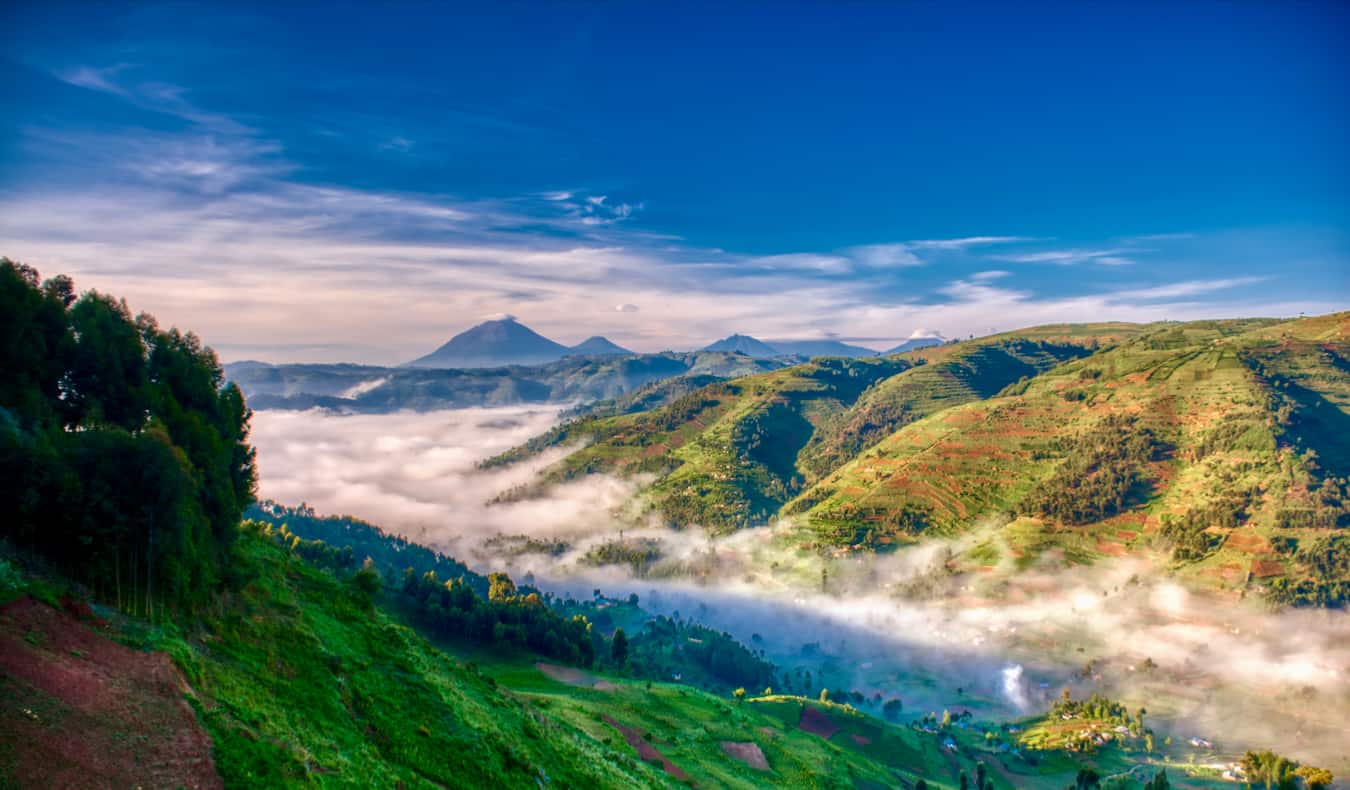
Today’s guest post is from Alicia Erickson. She’s a travel writer who splits her time primarily between East and Southern Africa, India, and Seattle. She’s writing about how to save money in Uganda, a country I have longed to visit but still haven’t gotten around to doing. Alicia shares her tips and tricks to save on your next visit!
The magnificent and diverse color, vegetation, and wildlife of Uganda so inspired Winston Churchill that he nicknamed this East African country “the pearl of Africa,” a name that has stuck ever since.
Since shedding its violent reputation after a volatile period during the 1980s, Uganda has changed a lot. In particular, it’s invested resources into developing its wealth of national parks, largely aimed toward the repopulation of wildlife and the conscious development of infrastructure to help make its vast wilderness accessible.
Although East Africa is known for its expensive high-end lodges and activities, Uganda is more affordable than some of its neighbors. It spoils adventure-seekers with its bounteous nature. In a relatively compact and easily navigable area, one can trek with mountain gorillas in dense jungle, visit coffee and tea plantations, relax by volcanic lakes, drive through savannah abundant in tree-climbing lions and other wildlife, hike snow-capped mountains, and raft down rapids in the Nile River! The Uganda visa is affordable and easy to get too!
Uganda has enthralled me since I first started visiting in 2010 and, over numerous visits, I’ve only developed a deeper appreciation for it. In this post, I want to share that love for the country and help you travel Uganda on a budget!
How to Save Money on Transportation
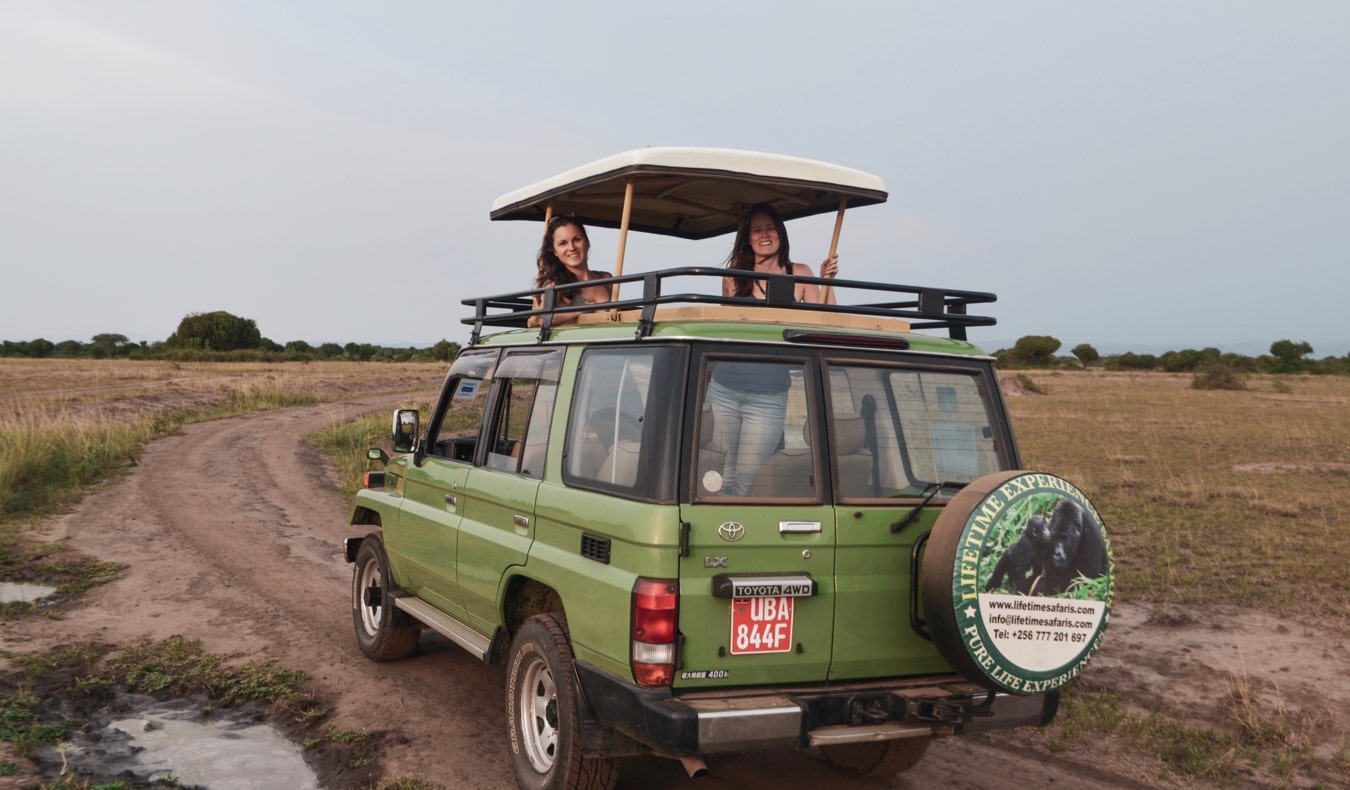
Boda Bodas (motorbikes) – Public motorbikes, known as boda bodas, are dirt cheap in areas such as Jinja and Kampala but are more difficult to find in rural areas and around national parks. While they are the most cost-effective form of transportation — between 5,000-6,000 Ugandan shillings (UGX) ($1.50-2 USD), though prices are always negotiable — exercise caution when using boda bodas, as they have a reputation for being quite dangerous: helmets aren’t provided, and drivers are known for being reckless.
However, Safe Boda and Uber, which connect passengers with drivers through their respective apps, have recently come to Kampala and provide much more reliable drivers and standardized pricing, with minimum fares starting at 5,000-6,000 UGX ($1.50-1.60 USD).
Matatus (local buses) – Local minibuses, known as matatus, are an inexpensive — though not altogether easy — way to get around Kampala. Matatus also run between different regions in Uganda, often without a set schedule, and leave once the bus has filled up.
Prices depend on route, though they are generally around 500-2,000 UGX ($.20-.25 USD). To catch one, just wave down one of these rundown white vans from the side of the road — but be warned that they are usually cramped and filled beyond capacity.
Taxis – Taxis are the most expensive way to get around cities, though also the safest. Prices are always negotiable, though expect to pay between 15,000 and 40,000 UGX ($4–11 USD) for a ride, depending on distance and time of day.
Coach Buses – Coach buses, run by a number of companies, are used to travel long distances within Uganda as well as to other East African destinations, such as Mombasa and Kigali. Costs are dependent on the route but generally run around 55,000 UGX ($13.50 USD) for a ten-hour journey.
Private Car Renting a car is an ideal way to independently explore Uganda and go deeper into some of the parks where public transportation does not go. Cars can be hired with or without a driver, as well as with or without camping equipment.
Although not necessary, a driver can be handy not only in navigating potholed roads but also by providing a wealth of historical and cultural insights and in spotting wildlife on safari. A reliable company I have used is Lifetime Safaris , which offered a safari rental car with starting at $60-80 USD/day. Your Drive Uganda offers rental cars from $30-40 USD a day and you can hire a car with a driver for $60 a day.
How to Save Money on Accommodation
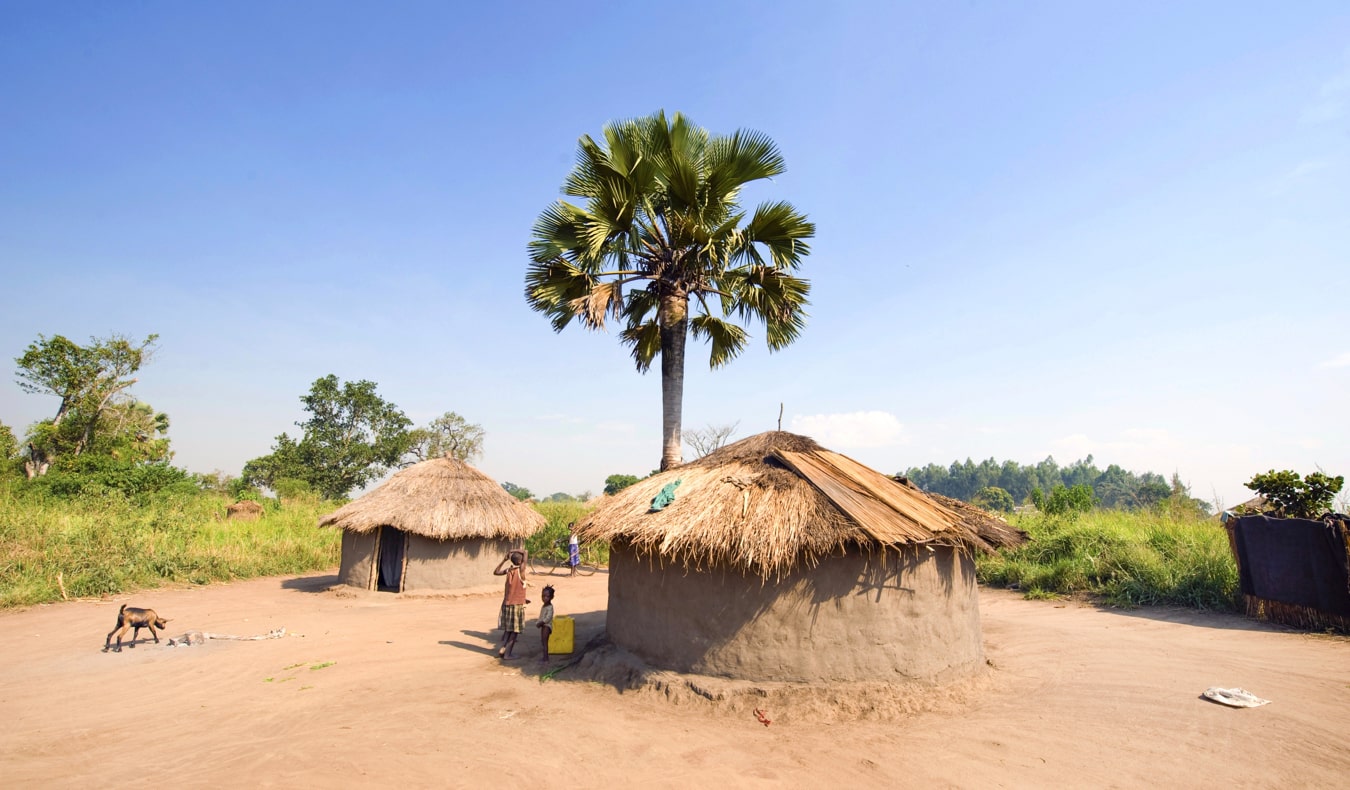
Hostels – There are only a handful of hostels in Uganda, mostly in Kampala. Red Chilli offers dorms at its property in Kampala for $12 USD/night and basic rooms for $30-45 USD, and Om Bunyonyi on Lake Bunyonyi in southwestern Uganda provides dorms for $15 USD/night or $45 USD for a private room.
Guesthouses – Guesthouses can vary widely in cost. A decent-quality one with relatively reliable facilities in touristic areas, such as Om Bunyonyi, runs around $25 USD/night for a double private room, though expect prices to be much higher around national parks. If you don’t book in advance and are stopping through a small town for the night, you can easily find very simple guesthouses for far less, approximately $14 USD/night. Water and electricity will often be unreliable in this style of accommodation, however.
Camping – Camping is a great option in the regions surrounding the national parks, such as Murchison Falls and Queen Elizabeth, though prices will vary by location. At its site in Murchison Falls, Red Chilli offers camping for $8 USD/night. Other sites and lodges offer camping for $8–12 USD/night. Many places offer tents for rent, though bringing your own equipment will save you even more money.
Eco-lodges – Budget-consciousness is probably not what you have in mind when you think “eco-lodge,” given the trend toward fancy eco-friendly safari lodges in East Africa. However, lodges and safari camps are a prominent form of accommodation in the national parks, and not all of them have to break the bank! There are some reasonably priced ones that still can be a nice splurge on a budget holiday. They can cost around $100 USD per night and usually include three meals a day as well, reducing other daily costs.
How to Save Money on Food and Drinks
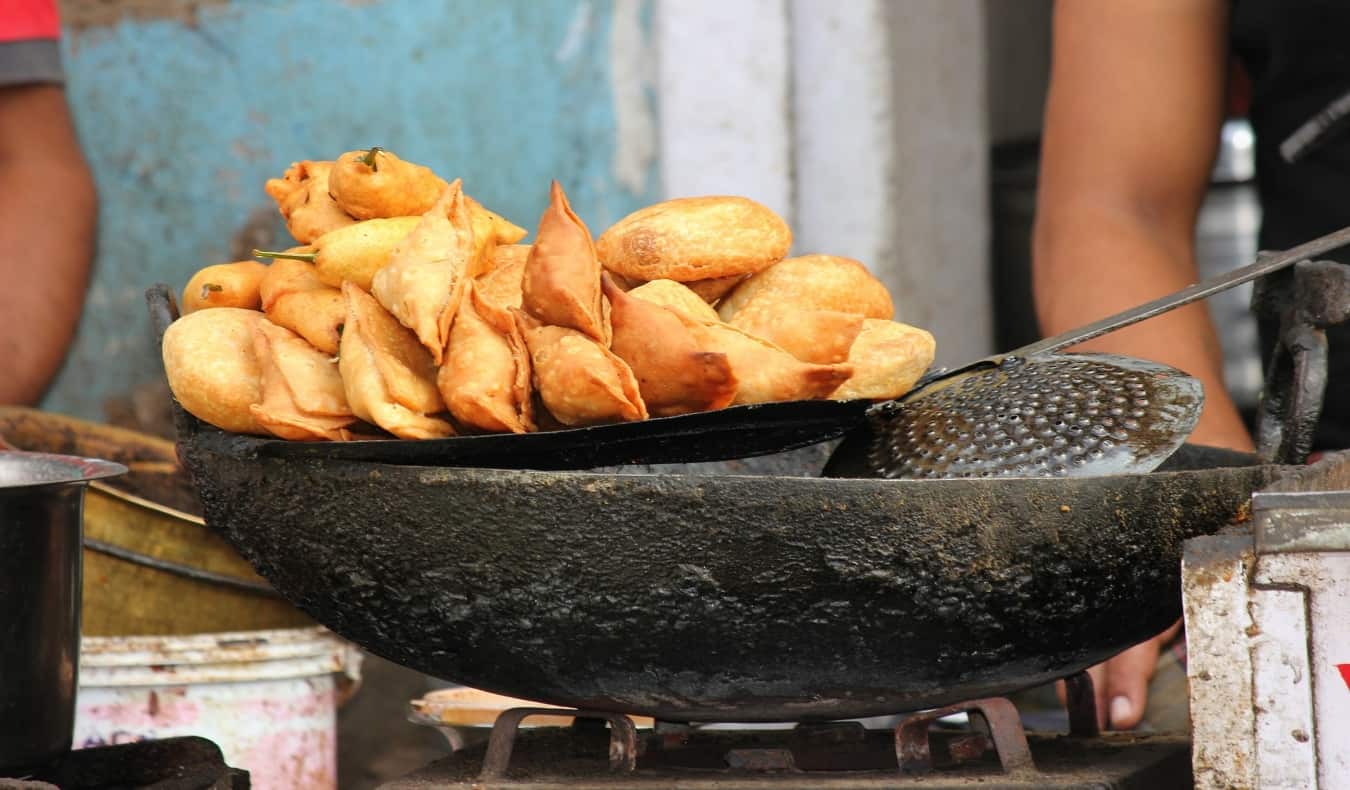
Restaurants – Kampala has an extensive international restaurant scene. They are expensive in comparison to local restaurants, though cheaper than eating out in Europe or North America and cheaper also than similar restaurants in other major East African cities. Costs range from 30,000 to 70,000 UGX ($8–20 USD) for an average meal.
Local cuisine, in contrast, is fairly simple — consisting largely of potatoes, rice, beans, cabbage, chapati (unleavened flatbread), and ugali (maize flour porridge) — and much more affordable. There are many Ethiopian restaurants as well, offering more mid-range meals.
Food-on-the-go – Uganda has a handful of street food items, the most famous being an egg and chapati wrap known as a “rolex,” which can also have different vegetables added and cost as little as 1,500–3,000 UGX ($0.40–0.80 USD). Stock up on fresh tropical fruit, which is abundant in markets and along the road; the price is always up for negotiation.
Inexpensive roadside food and snack stands selling corn, samosas, nuts, and grilled meat are also prevalent and convenient on long trips. Eating in these ways can save significant costs in Uganda.
Drinks – Foreign-import wine and spirits can be found in Kampala, though cocktails and wine are costly in the capital city’s posh bars, restaurants, and clubs. Your best bet is to stick with local beers such as Nile, which should cost 4,000–9,000 UGX ($0.80–2.40 USD), depending on the venue you buy it from. Or try out Uganda’s local gin, called Waragi, at around 1,000 UGX ($0.25 USD) a pour. This potent liquor becomes more tolerable when mixed with a good dose of tonic water and lime.
Adventure Activities Costs
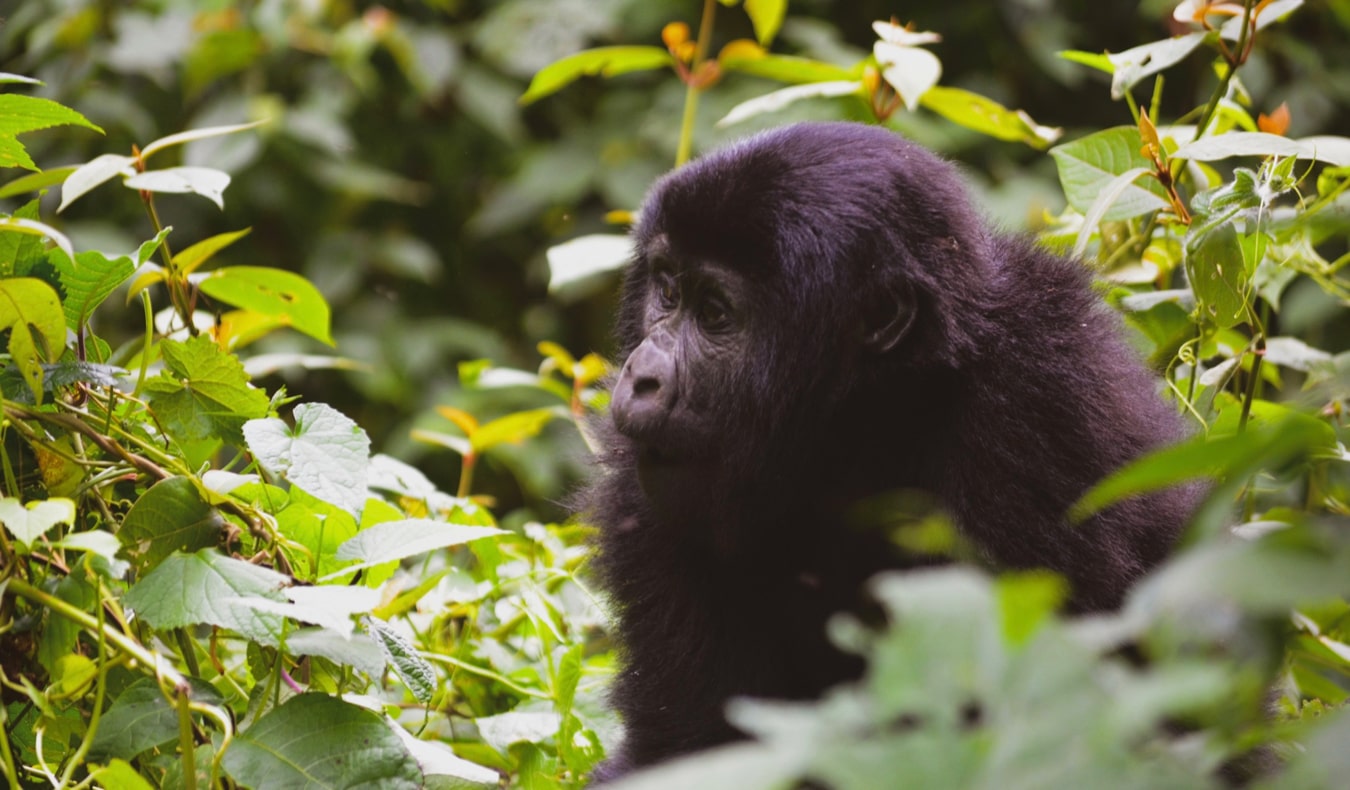
However, it is easy to intersperse those activities with low-cost days of relaxing by crater lakes, taking self-guided walks in the mountainous areas of southwestern Uganda, or volunteering. On those days, you can spend $30 USD/day or even less!
Here are some typical adventure-activity costs:
- Queen Elizabeth National Park : $40 USD/day for admission
- Murchison Falls : $40 USD/day for admission
- Rafting : $144 USD/per person for 5-6 hours
- Chimpanzee tracking in Kibale : $150 USD/permit
- Gorilla trekking in Bwindi : $700 USD/permit
Other Tips for Saving Money in Uganda
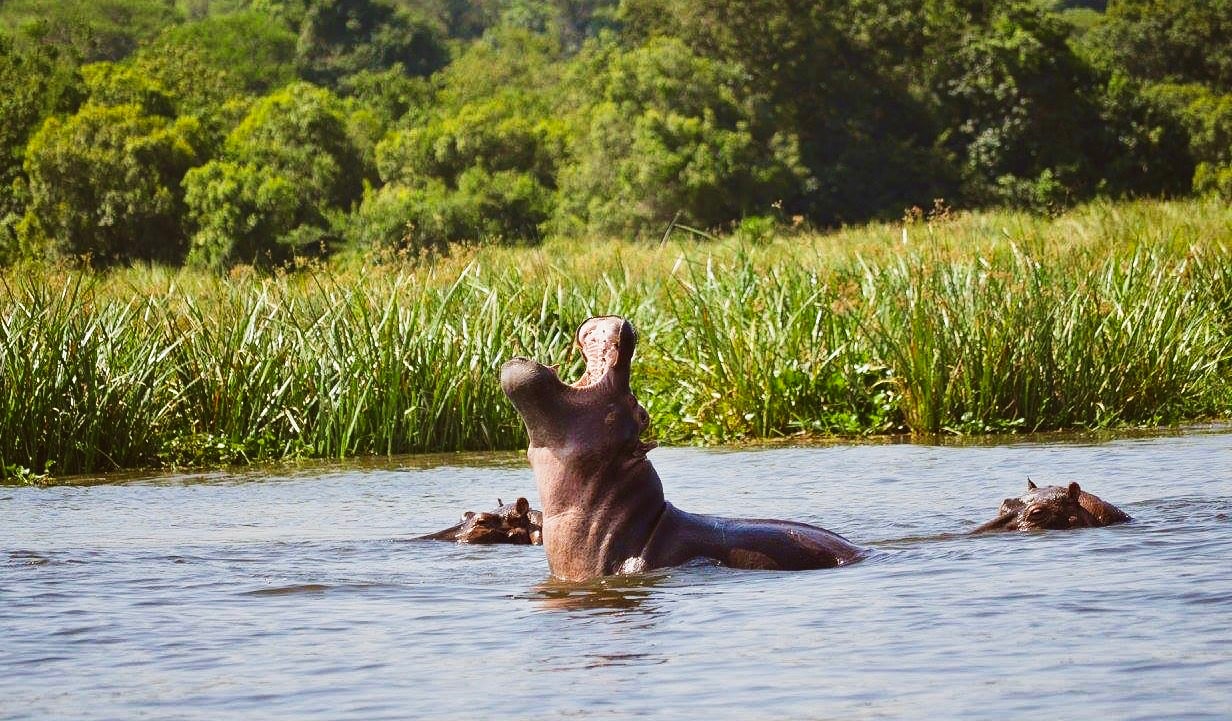
- Explore beyond the high-priced attractions – Regions outside of the major attractions are still abundant in nature and are often more captivating, as there are few to no tourists. Think volcanic lakes, little-known mountains, rarely visited waterfalls, almost-deserted islands, and dense forests and coffee and tea plantations.
- Travel during the off-season – Don’t let the rainy season scare you off! Uganda is at its most lush during the rainy months (March to May and October to November), crowds are at a minimum, and permits and lodging are often discounted to encourage tourism.
- Travel off the beaten path – Check out Lake Bunyonyi, the Ssese Islands in Lake Victoria, and Sipi Falls, for example. If you’re looking to do trekking in the region, the Rwenzoris are worth considering — while they aren’t “cheap,” they are a much more affordable option than Mt. Kilimanjaro and you can do shorter or longer treks depending on your time and budget.
- Consider volunteering – Avoid volunteer programs that charge money, but consider looking into opportunities such as those on Workaway , which will help save money on accommodation and offer a more in-depth cultural experience.
- Booking advice – Booking gorilla and trekking permits in advance is advisable to ensure a place, since permits are limited, but skip booking package safaris, as tour company costs are much higher than if one travels independently.
- Stay for a longer time – This might initially sound counterintuitive, but a longer stay means you won’t necessarily only be concentrating on the major tourist attractions. You’ll also have a better idea of how to navigate local transportation and become better acquainted with some of the regional cultures and smaller, underrated rural areas.
- Bring a reusable water bottle – To ensure your water is clean and safe (and to avoid spending money on single-use plastic) bring a reusable water bottle and a filter. LifeStraw makes a bottle with a built-in filter that ensures your water is safe and clean — no matter where in the world you are.
With the ever-increasing impact of globalization, once off-the-beaten-path locales are being put on the map. Much of Uganda still remains raw and less developed, though its increasingly improving infrastructure makes it the perfect destination for adventure travelers and outdoor enthusiasts. Development and prices are already on the rise so don’t hesitate to explore this wild and beautiful East African nation before the secret is out!
Alicia Erickson grew up as a third-culture kid, developing a love for travel at a young age. She has been a digital nomad for the past 5 years, working as a political analyst, social entrepreneur, writer, and yoga teacher while she explores the world. She splits her time primarily between East and Southern Africa, India, and Seattle, where she seeks off-the-beaten-path locales and is particularly drawn to mountains and the savannah, food, wine, and design culture. You can follow her adventures at Journey with Alicia .
Book Your Trip: Logistical Tips and Tricks
Book Your Flight Use Skyscanner to find a cheap flight. They are my favorite search engine because they search websites and airlines around the globe so you always know no stone is left unturned.
Book Your Accommodation You can book your hostel with Hostelworld as they have the biggest inventory and best deals. If you want to stay somewhere other than a hostel, use Booking.com as they consistently return the cheapest rates for guesthouses and cheap hotels.
Don’t Forget Travel Insurance Travel insurance will protect you against illness, injury, theft, and cancellations. It’s comprehensive protection in case anything goes wrong. I never go on a trip without it as I’ve had to use it many times in the past. My favorite companies that offer the best service and value are:
- Safety Wing (best for everyone)
- Insure My Trip (for those over 70)
- Medjet (for additional evacuation coverage)
Looking for the Best Companies to Save Money With? Check out my resource page for the best companies to use when you travel. I list all the ones I use to save money when I’m on the road. They will save you money when you travel too.
Got a comment on this article? Join the conversation on Facebook , Instagram , or Twitter and share your thoughts!
Disclosure: Please note that some of the links above may be affiliate links, and at no additional cost to you, I earn a commission if you make a purchase. I recommend only products and companies I use and the income goes to keeping the site community supported and ad free.
Related Posts
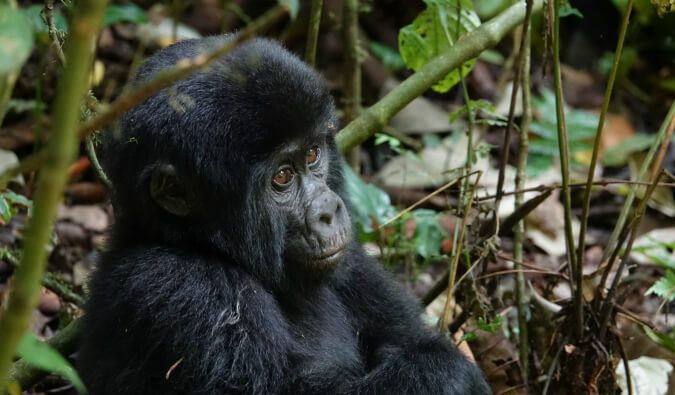
GET YOUR FREE TRAVEL STARTER KIT
Enter your email and get planning cheatsheets including a step by step checklist, packing list, tips cheat sheet, and more so you can plan like a pro!


First Time in Uganda: What to Expect, Itinerary, Expenses, and Travel Tips

- Post author: Glen Nomad
- Post comments: 0 Comments
- Post last modified: June 12, 2023
Popularly known as the “Pearl of Africa,” Uganda is a landlocked country located in East Africa. It is one of Africa’s top destinations when it comes to wildlife, culture, and adventure. About half of the world’s population of the endangered mountain gorillas are found in Uganda. It is also home to 10 national parks where tourists can see the wild’s “big five” – rhino, lion, leopard, buffalo, and elephant as well as zebra, giraffe, hippopotamus, crocodile, impalas, and a whole lot more of African wildlife.

If you plan to visit this gorgeous country for the first time, then this travel guide is for you. Based on experience, visiting Uganda is pretty easy. Most nationalities are eligible to get an e-Visa online so it’s hassle-free and convenient. The single entry visa cost is only USD50 or roughly around Php2,600. You can also get an East Africa Tourist Visa for USD100 that entitles you to enter Kenya, Uganda, and Rwanda for 90 days. Check out our Uganda Tourist Visa Application Guide to know more about the requirements and other details.
Important Things to Remember When Visiting Uganda for the First Time
- Make sure you have a shot of Yellow Fever Vaccine and always carry your Yellow Card when you explore East Africa. If you don’t have one, you can read our guide in getting a Yellow Fever Vaccine in the Philippines .
- If you are coming from the Philippines, book in advance or consider going to other countries closer to Africa like India . I flew to India and took a flight from Mumbai to Nairobi then took a bus to Kampala . Flying direct to Uganda’s Entebbe Airport is quite expensive than cutting flights.
- Book a return flight as it is way cheaper than booking separate one-way flights.
- Apply for an e-Visa online at least 10 days before your scheduled departure.
- Book your accommodation in advance as it is a requirement when applying for an e-Visa. I stayed at Hotel Acacia City and I had a nice experience. It is very close to the Acacia Mall and a walking distance to Uganda’s National Museum.

What to expect when you arrive in Uganda?
- The most common mode of transporation in Uganda are matatu and boda-boda. Matatu, a van service is usually used for long journeys. Boda-boda, on the other hand, is used for journeys within the city.
- Uber is operational in the capital city of Kampala. You can either take a car or a boda-boda.
- English is widely spoken in Uganda so you should be able to communicate well with the locals.
- The local currency in Uganda is Ugandan Shilling. One US Dollar is about UGX3,750.

Uganda Itinerary and Expenses
I only had three days in Uganda so I wasn’t able to explore the country as much as I should have. One of the reasons visited Uganda was to see the source of the Nile River. If I had more time, I would have visited the Bwindi Impenetrable National Park and see the endangered mountain gorillas. [Check out our list of top things to do in Kampala ]

Day 0-1: Departure from Kenya to Uganda
- Mash East Africa bus from Nairobi to Kampala. Cost is listed in my Kenya Itinerary and Expenses .
- Single Entry Visa Cost – USD51.5
- Taxi from the bus terminal to the hotel: UGX20,000. I was obviously overcharged here but it was raining and I was tired so I settled. He initially asked me to pay UGX25,000. Ideally, you should not pay more than UGX10,000. If you have an internet connection, use Uber.
- Grocery – UGX36,000. I bought some Ugandan coffee to bring home and some food supply.
- Lunch – UGX14,500.
- Boda-boda to the cathedral – UGX4,000.
- Boda-boda from the cathedral to the national mosque – UGX2,000.
- Boda-boda from the national mosque to the market – UGX3,000
- Boda-boda back to Acacia Mall – UGX3,000.
- Alcogel – UGX7,000.
- Early Dinner and coffee – UGX30,000
- Total Expenses Day 0-1: USD83.5 / Php4,345 / UGX312,942

Day 2: A Visit to the Source of the Nile River
- Uber to Jinja City – UGX87,000. Jinjia is where the source of the Nile River is located. I could have taken a matatu to save money but since I don’t have a lot of time and I woke up late, I decided to take an Uber instead.
- Lunch – UGX137,000. I treated my Uber driver for lunch since he agreed to accompany me to the source of the Nile and basically tour me around. It was also my first pork meal after a couple of weeks on the road. This also includes a bag of ground Ugandan coffee from Java House.
- Entrance to the Source of the Nile – UGX30,000.
- Parking fee – UGX5,000
- Uber back to Kampala City – UGX100,000
- Uber Boda to the bus station to book a bus ticket to Mwanza – UGX3,000.
- Boda-boda back to the hotel – UGX3,000
- Water UGX3,000
- Dinner – UGX12,000
- Total Expenses Day 2: USD101 / UGX380,000 / Php5,275

Day 3: Kampala City Tour + Off to Tanzania
- Uber Boda to Kasubi Tomb – UGX3,000
- Boda-boda to Kampala’s Crafts Market – UGX3,000
- Brunch – UGX17,000
- Boda-boda to Acacia City Mall – UGX3,000
- Dinner – UGX27,000
- Uber Car to the bus station – UGX6,000
- Bus fare from Kampala to Mwanza, Tanzania – UGX65,000
- Total Expenses Day 3: USD33 / Php1,720 / UGX124,000
Total Expenses in Uganda: USD217.5 / Php11,320 / UGX815,230

Travel Tips
- Buy a local sim to get connected to the internet and avoid getting lost.
- Exchange some currency to Ugandan Shillings. You can also withdraw cash from the ATM if you have a debit card with Visa or Mastercard logo.
- Download maps.me so you can access an offline map.
- Use Uber or Bolt (formerly Taxify) as much as possible to avoid getting scammed.
- Avoid riding unmarked taxis.
- You can reduce the expenses significantly if you stay in hostels or travel with another person to divide the hotel room cost.
- Flying with a combination of full-service airline and a low-cost carrier will also help you save money if you are traveling on a budget.

Follow us on Instagram

escapemanila

Glen Nomad is a travel blogger and the founder of Escape Manila, one of the top travel blogs in the Philippines. He has visited all 82 provinces in the Philippines and has explored 53 countries across Asia, North & South America, East Africa, Europe, and Australia. Follow him on IG at @escapemanila
Leave a Reply Cancel reply
You must be logged in to post a comment.
- Best Travel Apps
- Bus & Ferry Tickets
- Cheap Flights
- Privacy Policy
Privacy Overview
- Skip to primary navigation
- Skip to main content
- Skip to primary sidebar
- Skip to footer

Albrieux Africa Tours
How much does a trip to Uganda cost? 5 tips to save money (without sacrificing quality)
This guide was written by Edoardo , travel guide and owner of Albrieux Africa Tours In the last 10 years Uganda has attracted the attention of professional and amateur travellers and photographers; many wonder what the budget is necessary to organize a complete travel itinerary, with enough stay times to see all the beauties that the country offers without having to spend excessive amounts of money.
Obviously it is difficult to answer the question, since it depends both on the personal needs of each traveller and on many factors that undoubtedly affect the final price of the trip.
However, I tried to address the question in an analytical way and I’m sure you will be able to find some excellent ideas from this reading 🙂
Content index
- What factors affect the price?
- Five tips to save your budget
- Sample itineraries with prices
- Download our guide for Uganda
1. What are the factors that most affect the price?
High impact factors.

Medium impact factors

Zero impact factors

2. 5 tips to save money (without sacrificing quality)
1. join group travel.
An excellent solution to lower the final cost is to join other travellers; in this way you will amortize the costs of fuel, the rental of private vehicles for travel and the expenses incurred to have an expert guide during the tour.

Join our group travels
In Albrieux Africa Tours we offer organized group trips at special prices, with departures at certain times of the year in small homogeneous groups. If you haven’t found a trip in the desired period, you can always “open” your itinerary with your dates to other participants (you will decide the maximum number of companions).
Discover our group travels
2. Travel in the off season
Another piece of advice I can give you is to avoid the high season months. From December to January and from July to August the cost of accommodation and flights can cost double. Furthermore, in these months the request for permits to visit the Mountain Gorillas is very high and you may not find availability, especially if you organize your trip shortly in advance. Fortunately Uganda is located at the height of the equator and enjoys a climate that allows us to organize trips in any month of the year.
If I had the freedom to travel in every month of the year and I had to give you some advice on the best period considering the climate, prices (flights and lodges) and the number of visitors inside the national parks, I suggest February, March, June and September.
3. Book in advance
The wisest choice to save money is undoubtedly to book the trip well in advance; in addition to saving on the price of flights, I assure you that you will also save on ground services; myself, as a local operated tour, I am able to guarantee travellers who book in advance, greater flexibility and better treatment. My advice is to move at least 6-12 months in advance.
4. Trust a local tour operator
Relying on a local tour operator (i.e. based in Uganda) is a better choice than relying on an agency or, worse, organizing the trip independently:
- First of all you will save on brokerage costs; my Ugandan agency works with both private individuals and travel agencies. It is clear that by entrusting yourself directly to me you will “skip a piece of the chain”;
- moreover, for any doubt or curiosity you can get in touch directly with an expert, not to mention the fact that you will have maximum flexibility in deciding the departure dates and entering the activities you prefer;
- finally, when organizing a solo trip, errors are often made when choosing the itinerary and when planning internal travel, causing unexpected expenses.
5. Choose the number of days that fits your greatest interests
Doing more days doesn’t always mean doing more activities; it is clear that in a complete tour without budget limits we recommend having a few days of detachment between trekking and the other to better enjoy the lodges and the surrounding nature; however, if the cost starts to weigh on your budget, we advise you to shorten the number of days (which coincides with self-driving cars available for fewer days and nights and stays in smaller parks) while maintaining the same number of activities and foreseeing a more intense tour.
Prepare your trip, download our guide to Uganda updated to 2024
Download the guide
3. Examples of prices for a trip to Uganda

14 days Uganda: “Lions climbing” special – from $3500
14 days where we will focus on discovering the Primates and the climbing lions that inhabit the area with a one night stay in Ishasha. Before returning to Entebbe, we will complete the trip with the great lakes of the South, including Lake Mburo: “home of the fish eagles”.
Discover the tour

12 days Uganda between Primates, lakes and volcanoes – from $2950
12 intense days of water safaris, photography and Primate trekking combined with relax at Lake Mutanda and Lake Bunyonyi where you will enjoy spectacular and unique landscapes of this part of Africa.

10 days Uganda with Primates and “The Big Five” – from $2850
Explore the country’s best destinations in 10 days, through savannah and river cruises at Murchison Falls NP and Queen Elizabeth NP combined with a search for Primates.

Best seller tour 7 days Uganda: Primates special – from $2715
Our 7 days best seller allows you to see all 3 Primates (Gorilla, Chimpanzee and Golden Monkey) in the three different forests (Kyambura, Bwindi and Mgahinga) and to go looking for predators at Queen Elizabeth National Park.

6 days Uganda looking for “The Big Five” – from $1050
A 6-day tour for families with children, we’ll be looking for “The Big Five” and make water safaris in two major National Parks.

3 days Uganda: Gorilla trekking Special – from $1530
3 days discovering the Mountain Gorillas with arrival and departure from Kigali. A perfect itinerary for those who want to add a beach holiday.
You may also be interested in:

Email: [email protected]
Cel: +39 347 843 4140
Instagram: albrieux.africa.tours
Visit the french website 🇫🇷
Visit the italian website 🇮🇹
Our itineraries:
Uganda tours Rwanda tours Honeymoon travel
Best seller trips:
7 days Uganda: Primates special 10 days in Uganda with Primates and “The Big Five” 12 days in Uganda between Primates, lakes and volcanoes
Uganda travel guide: Consult our Uganda travel guides • When is the best time to go to Uganda? • How much does a trip to Uganda cost? • Uganda safety: unfounded fears or real risks? • Download the Uganda vadamecum
Customer Support: Frequently asked questions Request a quote
Cost of Travel in Uganda
For a safari destination, Uganda is among the affordable options. In this article, we list the average costs for hotels, food and drinks in Uganda serving as a guideline for planning your daily travel budget.
Uganda's park entrance permits are paid by credit card, but all other expenses on your travel in Uganda are mostly paid for in cash. Luckily ATMs are widely available. A good way to avoid heavy surcharges when using your card abroad or carrying large sums of cash is to use mobile money and register with MTN or Airtel, which we discuss further below.
The Cost of Travel in Uganda: A Budget Breakdown
The cost of a litre of petrol fluctuates. The best thing is to Google for the most up-to-date fuel price.
Eating out in Uganda is cheap. A three-course meal at a lodge inside a safari park is more expensive; expect to pay around 15-25 pp. A 10% tip is considered high but received with gratitude. If you're happy with the service, please be generous. Tips are equally shared among all staff at most places.
Compared to well-known safari destinations like Tanzania, Kenya, and South Africa, accommodation in Uganda is affordable and has a good price-quality ratio.
The hotel rate indication is roughly as follows:
- Budget: up to USD 100 for a double room (B&B)
- Mid-range: up to USD 175 for a double room (B&B) High-end:
- Beyond USD 175 for a double room. Usually, these accommodations are quoted on the basis of Full Board only.
For an overview of the entrance fees of Uganda's National Parks and permits, we refer you to the National Parks guide section of this website.
Are you looking for ways to have a comfortable holiday in Uganda while limiting your spending? Check out our blog on Tips for a Budget-Friendly Trip to Uganda , where we list our top money-saving tips for visiting Uganda on a budget.
Handling money on your travels in Uganda
Uganda's park entrance permits are paid by credit card, but all other expenses on your travel in Uganda are mostly paid for in cash.
Most restaurants, lodges or campsites do not accept foreign debit cards. Paying with foreign credit cards (Visa and Mastercard) is possible, but only at the more upmarket hotels and restaurants.
ATMs are widely available across the country. Stanbic and Barclays are the most reliable banks, accepting MasterCard, Maestro, and Visa. Bring additional cards, as the daily uptake with a foreign card is limited at ATMs in Uganda.
We recommend bringing additional Euros or US Dollars with you in cash, for unforeseen circumstances. US Dollars and Euros can easily be changed to Ugandan shillings at any Forex Bureau in most provincial towns. Please be aware that USD notes printed in 2010 or earlier are not accepted in Uganda and denominations smaller than USD 50 are accepted at a lower rate. Some banks might still exchange old notes for you, but the exchange rates will be a lot lower.
A good way to handle money on your travels in Uganda is to use mobile money and register with MTN or Airtel. It enables users to store, send, and receive money using their mobile phones. The use of mobile money is widespread in Uganda. It means you can pay any bill or vendor (the souvenir stand on the local market, entrance fees at the park gate, drinks at a restaurant), directly with your phone. We strongly recommend that you buy a local SIM card to insert into your own smartphone and load it with airtime and an internet bundle. You can buy a sim card on arrival at the airport, or at any of the many shopping malls.
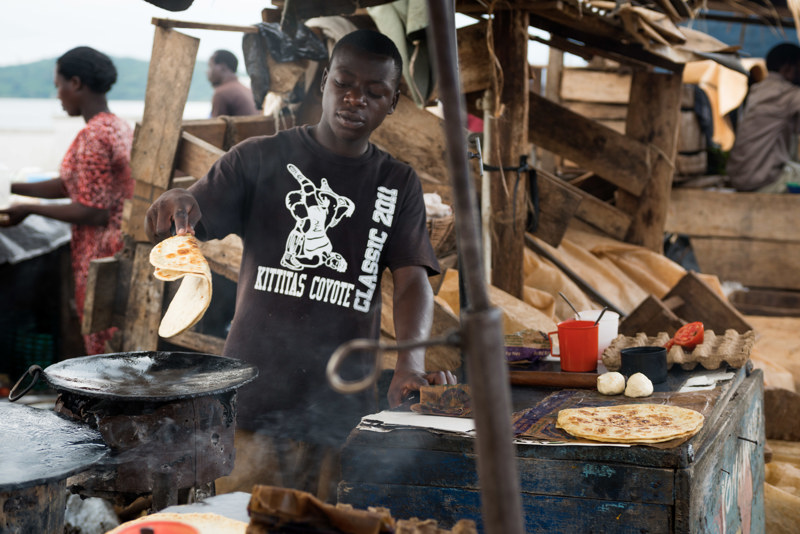
- Travel Planning Guide
How much does a trip to Kampala Cost?

How much money should you budget for your trip to Kampala?
How much does a weekend trip to kampala cost.
- How much does a five-day trip to Kampala cost?
- How much does a one-week trip to Kampala cost?
- Hostel Prices
- Hotel Prices
The Cost of a Trip to Kampala
When it comes to exploring Kampala, travelers typically find themselves budgeting between $0 and $0 per day for solo adventures and $0 to $0 if you're traveling as a couple. Now, that's a broad range, but the typical trip, on average, is $0 (USh0) per person per day. This average cost covers sightseeing, accommodation, meals, and transportation, all from our large repository of travel expenses from previous visitors. Keep in mind, though, your personal spending might vary a bit based on your own level of luxury, travel style, and chosen activities. However, if you're visiting the highlights with some savvy planning, chances are your spending will vibe right around this average cost. For more details, check out the breakdown of expenses by category, plus the breakdown on accommodation and activity prices below.
If you're considering an independent trip to Kampala, it's helpful to have an idea of the amount of money you'll need. For budget travelers, planning to spend around $0 (USh0) per day should cover your essential expenses, including affordable accommodations like hostels and budget hotels, cost-effective meal options, local transportation, and affordable activities. For those with a mid-range budget, allocating around $0 (USh0) per day would allow for more comfortable hotels, dining at typical restaurants, and exploring a range of popular attractions. Luxury travelers, on the other hand, should anticipate a daily budget of $0 (USh0), which would encompass higher-end accommodations, dining at nicer restaurants, and indulging in private tour options. It's worth noting that these price ranges are based on extensive travel cost data for Kampala from fellow travelers, as well as insights from travel companies regarding hotel and tour prices. For further details on travel costs, you can refer to our comprehensive travel cost data for Kampala .
Travelers spend, on average, $0 per person on a three-day trip to Kampala. This includes sightseeing, hotels, food, and local transportation. You can stick close to this average price by staying at mid-range hotels and eating at mid-level restaurants, while also paying for some entry tickets to popular attractions. If you wish to travel cheaper, it's possible to find lower-cost accommodations, eat at less expenive restaurants, and find more free activities. It's also common for many visitors to have a much higher travel budget, as many high-end hotels and restaurants can be found around town.
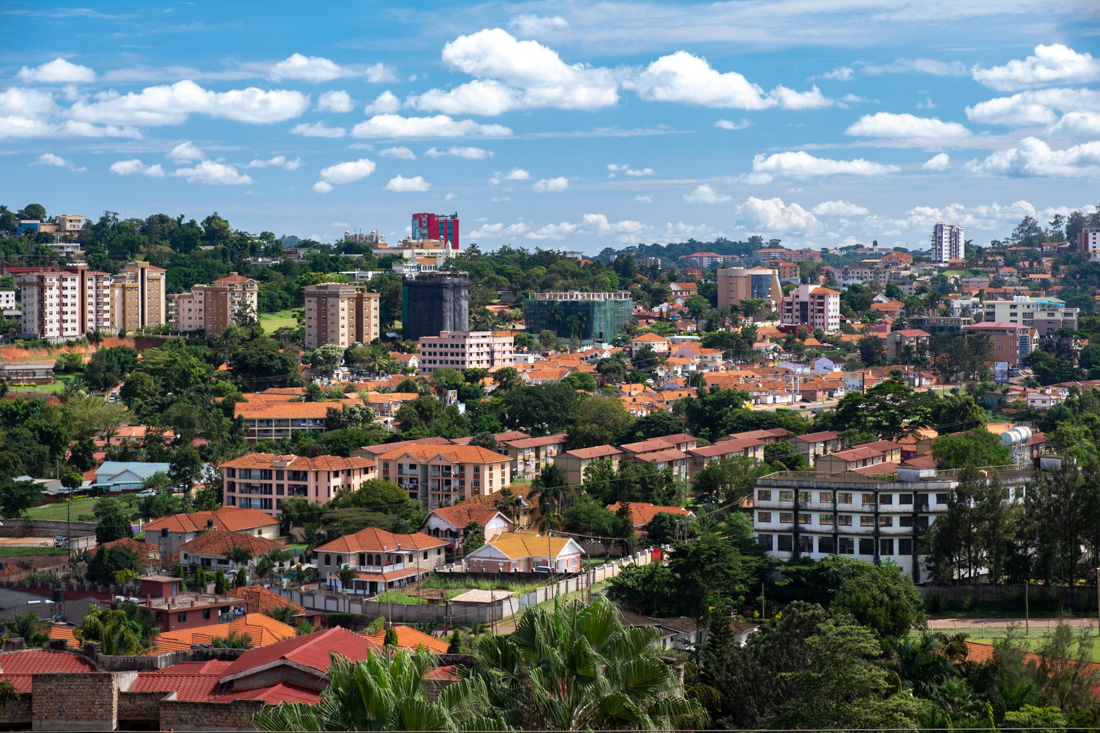
How much does a five day trip to Kampala cost?
With five days in Kampala, you can expect to spend about $0 total, not including transportation to and from the city. It's possible to stay close to this daily average by booking mid-range hotels, eating at normal restaurants, and paying for some entry tickets to popular attractions. It's possible to find lower-cost accommodations, eat at less expenive restaurants, and find more free activities if you want to spent less money.
How much does a one week trip to Kampala cost?
Most visitors spend between $0 and $0 for a one week trip to Kampala, with the average being $0 . This includes sightseeing, local transportation, food, and hotels. One week is enough time to have a more in-depth experience in Kampala. Also, one week allows you to be more flexible with your time and money, so you can potentially save money on some aspects of your trip while spending more on others.
Hostel Prices in Kampala
With more than 5 hostels in Kampala, the average price is $17 per night for a dorm bed. The cheapest hostel costs $8 and the most expensive is $25. Usually popular with younger travelers, hostels are a great way to save money while also being social. But not all hostels are the same, and we've analyzed the prices of both dorms and private rooms to find the average prices and best places to stay. You can see more details about the hostel prices in Kampala here .
Here are a few sample prices from popular hostels in Kampala.
- $18 for a dorm bed at Bushpig Backpackers Ltd in Kampala more details
- $8 for a dorm bed at Acacia Villa in Kampala more details
Hotel Prices in Kampala
The average price for a hotel room in Kampala is $64 per night. This average is based on our detailed analysis of available hotels in the area. If you want to save money, or if you're planning a more luxurious trip, it's important to look at hotel prices based on the overall star-rating as well as guest reviews. Also, prices can vary by location and amenities. You can see more details from our analysis of hotel prices in Kampala here , and below is a breakdown of hotel prices by star-rating.
Le Petit Village Boutique Hotel
Satellite hotel kisasi, should you do a tour in kampala.
You'll find a wide range of guided tours in Kampala and many visitors enjoy the convenience of having an expert guide leading them through the chosen activity. Tours range in price from $15 for the Uganda Community Tour to $840 for the Jinja: Two-Day Rafting, Horse Riding, Quad Biking Adventure .
- Kampala Heart of Walking Adventure Viator $ 25
- Kampala Heart of Walking Adventure : $25
- Best Jinja source of the River Nile day experience: $170
- 1 Day Jinja tour special with Lunch: $170
- Kampala's walking city Tour Experience : $28
- Best Kampala group Walking Tour.: $20
- Half day Kampala City Motor Bike Tours : $30
- Best Full Day Cultural Tour of Kampala: $135
- 1 day Jinja Day trip and Source of R. Nile tour: $261
More for Kampala
If you're planning a trip to Kampala, Uganda, check out these other informative travel guides.
We've been gathering travel costs from tens of thousands of actual travelers since 2010, and we use the data to calculate average daily travel costs for destinations around the world. We also systematically analyze the prices of hotels, hostels, and tours from travel providers such as Kayak, HostelWorld, TourRadar, Viator, and others. This combination of expenses from actual travelers, combined with pricing data from major travel companies, gives us a uniqe insight into the overall cost of travel for thousands of cities in countries around the world. You can see more here: How it Works .
Subscribe to our Newsletter
Coupons and discounts! Travel tips!
1 Categories averaged on a per-item basis. 2 Categories averaged on a per-day basis. For example, the Food 2 daily average is for all meals for an entire day, while Entertainment 1 is for each individual purchase. Thus, the overall daily average cost is not a summation of the individual categories.
- You are welcome to reference or display our travel costs on your website as long as you provide a link back to this page .
- For a basic link, you can copy and paste the HTML link code, or this page's address. Address Link HTML Kampala Travel Costs " disabled />

Some of the links on this website are sponsored or affiliate links which help to financially support this site. By clicking the link and making a purchase, we may receive a small commission, but this does not affect the price of your purchase.
- Privacy / Terms of Use
- Activities, Day Trips, Things To Do, and Excursions
- Car Rentals
- Airport Transfers
- Attractions & Tours
- Flight + Hotel
- Destinations
- Trip.com Rewards
Discover the Hidden Gems of Uganda: Unveiling the Trip to Uganda Cost 2024

by Trip.com
August 3, 2023
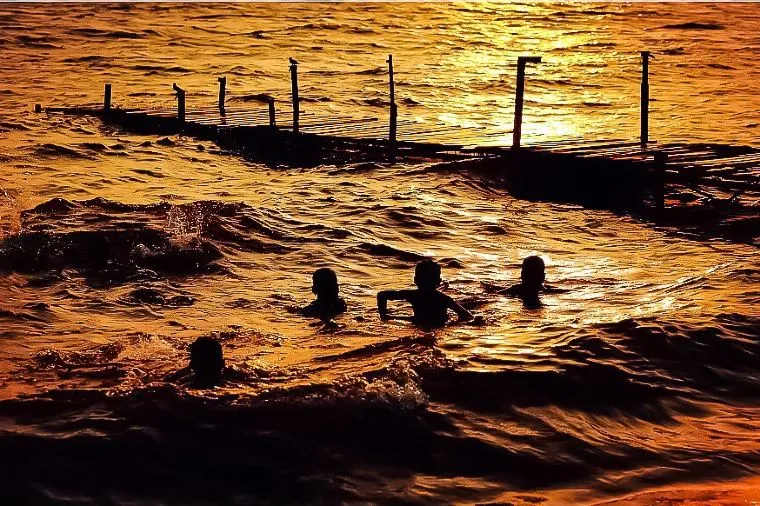
Uganda, a captivating country in East Africa, offers a plethora of awe-inspiring experiences for travelers. Planning a trip to Uganda can be an exciting adventure, but it's essential to consider the cost. In this article, we aim to provide you with the best tips for saving money without compromising on quality. From affordable hotels to delicious local cuisine, we've got you covered. So, if you're wondering about the trip to Uganda cost, keep reading!
When it comes to the cost of a trip to Uganda, it's crucial to consider various factors. For a round-trip ticket from major international airports, flights to Uganda can range from $800 to $1,500, depending on the season and airline. Accommodation options in Uganda cater to all budgets, with prices ranging from $10 per night for budget hotels or hostels to $500 per night for luxury hotels. While the public transportation system in Uganda may not be as extensive as in some other countries, it is still efficient and affordable, with one-way subway or train tickets costing around $1 to $5. As for food, you can enjoy delicious meals at budget restaurants for as low as $3 per person, while mid-range restaurants may charge around $10 to $20 per person.
For budget travelers, planning ahead and researching activities and costs is essential. On average, a budget traveler in Uganda can expect to spend around $40 to $60 per day, including accommodation, food, transportation, and activities. On the other hand, a mid-range traveler can expect to spend approximately $80 to $120 per day. By creating a well-thought-out budget, travelers can make the most of their trip to Uganda without breaking the bank.
- How much does it cost for 2 nights and 3 days when traveling to Uganda?
Hey there, fellow travel enthusiasts! If you're dreaming of embarking on a thrilling adventure to Uganda, you're probably wondering about the cost. Well, fret not! We've got you covered with a rough estimate of how much a 2-night, 3-day trip to this magnificent country might set you back. Keep in mind that these figures are just ballpark numbers and can vary depending on your travel style, accommodation choices, transportation preferences, and the activities you indulge in.
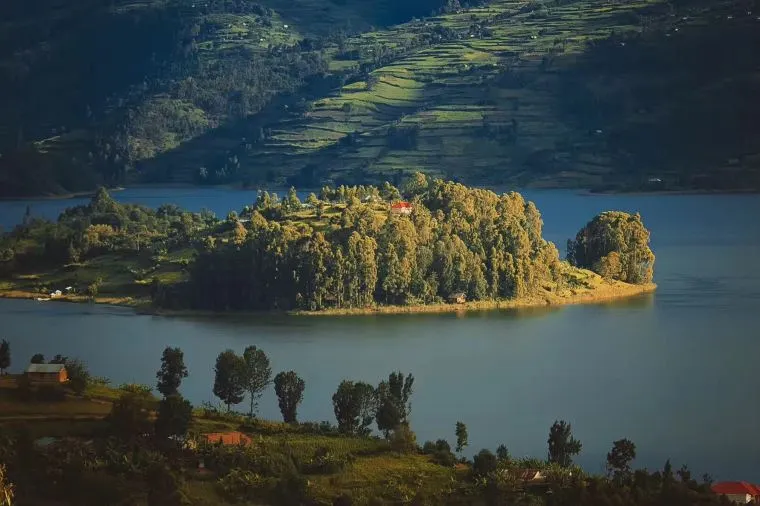
So, let's dive right in and break down the expenses:
First things first, let's talk about flights. The cost of a round-trip ticket to Uganda from major cities around the world can range anywhere from $600 to $1500, depending on the season and availability. It's always a good idea to keep an eye out for deals and discounts to snag the best possible price.
Accommodation
Now, let's find you a cozy place to rest your weary head. Budget hotels in Uganda can cost you around $20 to $50 per night, depending on the location and amenities. For a 2-night stay, you can expect to spend roughly $40 to $100 on accommodation.
Transportation
Getting around Uganda is an adventure in itself! A one-way subway or train ticket can cost you approximately $1 to $3, and for a 3-day trip, you might spend around $6 to $18 on transportation. Keep in mind that prices may vary depending on the distance and mode of transport you choose.
Food and Drinks
Now, let's tantalize your taste buds! If you're looking to dine at budget restaurants, a meal in Uganda can cost you anywhere from $3 to $10 per person. However, if you're feeling a bit more adventurous, street food and convenience store meals can be even cheaper. As for drinks, a bottle of water might set you back around $0.5 to $1, while a local beer or soda can cost you approximately $1 to $3, depending on the location. For a 3-day trip, you can expect to spend roughly $45 to $150 on food and drinks.
Sightseeing and Activities
Uganda is a treasure trove of breathtaking sights and thrilling activities. Some popular attractions, such as exploring the stunning Bwindi Impenetrable Forest or visiting the majestic Murchison Falls National Park, may have a small entrance fee ranging from $10 to $30 per person. If you're up for a more extravagant experience, activities like gorilla trekking can cost around $600 to $700 per person. For a 3-day trip, you might spend approximately $30 to $750 on sightseeing and activities.
So, what's the total damage?
For a budget traveler looking to have an incredible 2-night and 3-day trip to Uganda, you can expect to spend around $721 to $2418. Remember, these figures are just rough estimates, and your actual costs may vary depending on your travel style, the activities you choose, and other personal expenses.
Now that you have a general idea of the trip cost, it's time to start planning your unforgettable Ugandan adventure. Pack your bags, grab your camera, and get ready to immerse yourself in the wonders of this beautiful country!
- How much does it cost for flights when traveling to Uganda?
Planning a trip to Uganda? One of the first things on your mind is probably the cost of flights. Well, let me tell you, my friend, that the cost can vary quite a bit depending on a few factors. So, buckle up and let's dive into the nitty-gritty of flight prices to Uganda!
When it comes to booking flights, there are a few key factors that can influence the cost. First and foremost, your departure location plays a significant role. Whether you're flying from New York City or Sydney, the prices can differ quite a bit. It's like comparing apples to oranges, you know?
Another factor to consider is the time of year. Just like how prices fluctuate for fashion trends, flight prices also have their own seasons. Peak travel times, such as summer or holidays, tend to be pricier. But if you're flexible with your travel dates, you might just snag a sweet deal!
Now, let's talk airlines. Different airlines have different pricing strategies, just like how your favorite coffee shop charges extra for that fancy latte. Some airlines might offer more affordable options, while others cater to those seeking a luxurious flying experience. It's all about finding the right fit for your budget and preferences.
Lastly, availability can also impact the cost of your flight. If you're booking last minute, you might have to shell out a bit more dough. But if you plan ahead and book in advance, you can save some serious cash. It's like buying concert tickets – the early bird gets the best seat!
Now, let's get down to the numbers. Keep in mind that these are just general ranges, and prices are subject to change. For one-way tickets, you can expect to pay anywhere from $500 to $1500, depending on the factors we discussed earlier. Round-trip tickets, on the other hand, can range from $800 to $2500.
Of course, these prices are based on flights from major cities around the world. If you're departing from a smaller airport, the costs might be slightly higher. But hey, don't let that discourage you! A trip to Uganda is worth every penny, my friend.
So, there you have it – a glimpse into the world of flight prices when traveling to Uganda. Remember, it's all about finding the right combination of factors that work for you. Happy planning and safe travels!
- How much does it cost for hotels when traveling to Uganda?
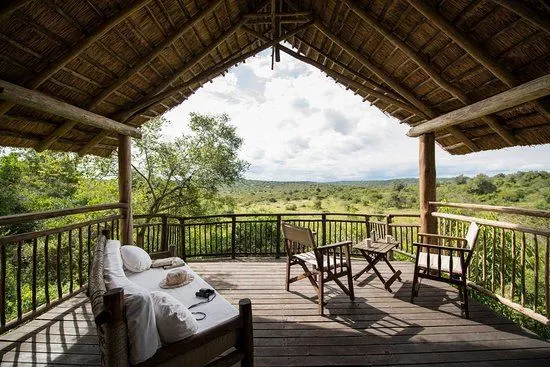
Planning a trip to Uganda? One of the key factors to consider is the cost of accommodation. The price of hotels in this beautiful country can vary depending on several factors, including the location, season, and the type of accommodation you are looking for.
When it comes to major cities like Kampala, Entebbe, and Jinja, it's important to note that hotels tend to be more expensive compared to smaller cities or rural areas. In these bustling urban centers, you can find a wide range of accommodation options, from budget-friendly hotels to luxurious resorts.
In Kampala, the capital city of Uganda, the average cost range for a mid-range hotel room per night is around $60 to $100. If you're looking for a more lavish experience, luxury hotel rooms can cost anywhere from $150 to $300 per night.
Similarly, in Entebbe, a popular city known for its proximity to Lake Victoria and the international airport, the average cost range for a mid-range hotel room per night is approximately $70 to $120. For those seeking a touch of extravagance, luxury hotel rooms can range from $200 to $400 per night.
As you venture into smaller towns and cities across Uganda, you'll find that the cost of hotels becomes more affordable. In places like Mbarara, Mbale, and Gulu, mid-range hotel rooms can cost around $40 to $80 per night. Luxury hotel rooms in these areas may range from $100 to $200 per night.
It's worth mentioning that these price ranges are just estimates and can vary depending on the specific hotel, season, and availability. It's always a good idea to check with various accommodation providers and compare prices to find the best deal for your trip to Uganda.
So, whether you're planning to explore the vibrant streets of Kampala or immerse yourself in the natural wonders of smaller towns, Uganda offers a range of hotel options to suit every budget. Remember to book in advance and enjoy your stay in this enchanting country!
- How much does it cost for food when traveling to Uganda?
When planning a trip to Uganda, it's important to consider the cost of food and dining. The prices can vary widely depending on several factors such as the type of food, the restaurant's location, and the level of formality or luxury. So, let's delve into the details and get a better understanding of what to expect.
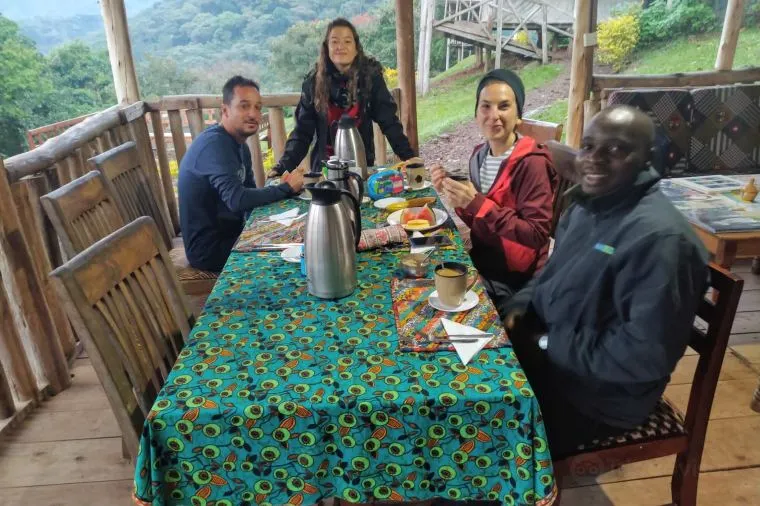
Food prices in Uganda can range from budget-friendly to more upscale options. Here's a breakdown of the general price ranges in US dollars per meal:
- Street food or fast food: $1 - $5
- Casual dining or local restaurants: $5 - $10
- Mid-range restaurants: $10 - $20
- High-end or luxury restaurants: $20 and above
It's important to note that these price ranges are approximate and can vary depending on the specific establishment and location. However, they give you a good idea of what to expect when it comes to dining out in Uganda.
Aside from eating out, there are also other affordable options for food in Uganda. Convenience stores and supermarkets offer a range of groceries and ready-to-eat meals at reasonable prices. This can be a great option for travelers looking to save money or have more control over their meals.
Now, let's talk about tipping. In Uganda, tipping is not as common as in some other countries. However, it is appreciated if you receive exceptional service. It's not mandatory, but leaving a small tip as a token of appreciation is always a nice gesture.
So, when planning your trip to Uganda, remember to consider the cost of food and dining. Whether you choose to indulge in local cuisine at a high-end restaurant or opt for budget-friendly street food, there are options to suit every traveler's taste and budget.
- How much does it cost for souvenirs when traveling to Uganda?
Well, let me tell you, my friend, the cost of souvenirs in this vibrant East African country can vary like night and day. It all depends on what you're on the hunt for, where you decide to do your shopping spree, and of course, the quality of the item you desire. Uganda is a treasure trove of unique souvenirs that will surely make your heart skip a beat and your wallet a little lighter. Let's dive into the nitty-gritty, shall we?

Now, let's talk about some of the most popular souvenirs you can find in Uganda and their price range in good ol' US dollars. Brace yourself, my friend, for a journey through the land of souvenirs. First up, we have the ever-charming African drums, which can range anywhere from $50 to $200, depending on the size and craftsmanship. If you're more into the artsy side of things, you might want to check out the beautiful handcrafted wooden masks, which can cost you anywhere from $20 to $100.
But wait, there's more! Uganda is also famous for its exquisite woven baskets, which can be yours for a price ranging from $10 to $50. And if you're a fan of all things shiny and sparkly, you can't miss out on the stunning jewelry made from colorful beads and recycled materials, with prices ranging from $5 to $50. Now, my friend, keep in mind that many souvenir shops in tourist areas have fixed prices, but don't lose hope just yet. There might be a glimmer of hope for some bargaining action in other types of stores, such as flea markets or antique shops.
So, my fellow adventurer, when planning your trip to Uganda, make sure to set aside a little extra cash for those irresistible souvenirs. Remember, the cost of souvenirs can vary greatly depending on what you're after, where you choose to shop, and the quality you seek. Happy souvenir hunting!
- How much does it cost for transportation when traveling to Uganda?
Planning a trip to Uganda? One of the important factors to consider is the cost of transportation. Whether you're exploring the bustling city of Kampala or venturing out to the stunning national parks, understanding the transportation expenses is crucial for budgeting your trip. Let's dive into the various modes of transportation and their associated costs in Uganda.
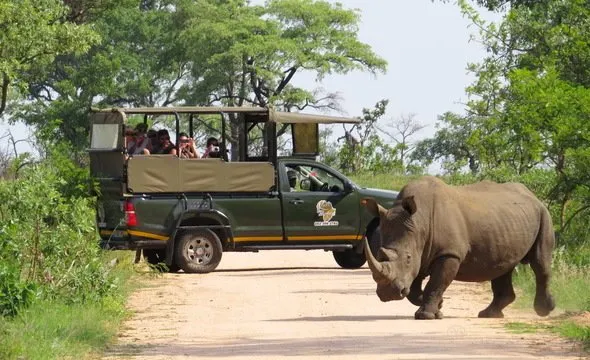
The cost of transportation in Uganda varies depending on the mode of transportation and the distance traveled. Let's take a closer look at the estimated costs for different types of transportation:
Unfortunately, Uganda does not have an extensive train network for passenger transportation. Therefore, train travel is not a common mode of transportation for tourists visiting Uganda.
Similarly, Uganda does not have a subway system. However, there are plans for the construction of a light rail system in Kampala, which will provide an efficient means of transportation in the future.
Buses are a popular and affordable mode of transportation in Uganda. The cost of a bus ticket can range from $1 to $10, depending on the distance traveled and the type of bus. Local buses, known as "matatus," are the most economical option, while luxury buses offer a more comfortable experience at a slightly higher cost.
Taxis, both regular and ride-sharing services, are readily available in Uganda. The cost of a taxi ride varies depending on the distance and the time of day. On average, a short taxi ride within the city can cost around $2 to $5, while longer trips can range from $10 to $30.
If you prefer the freedom of driving yourself, renting a car is a convenient option. Rental car prices in Uganda start at around $30 per day for a basic car and can go up to $100 or more for a larger vehicle or luxury SUV. It's important to factor in additional costs such as fuel and insurance when considering renting a car.
Now, you might be wondering if Uganda offers any transportation passes or discount tickets for visitors. While there are no specific transportation passes available, some tour operators and travel agencies offer package deals that include transportation along with other services. These packages can be a good value if you plan to do a lot of traveling in a short period.
In conclusion, the cost of transportation in Uganda varies depending on the mode of transportation and the distance traveled. Buses and taxis are the most common and affordable options, while rental cars provide flexibility for those who prefer to drive themselves. Remember to consider your travel itinerary and budget when choosing the most suitable mode of transportation for your trip to Uganda.
- How much does it cost for sightseeing when traveling to Uganda?
Planning a trip to Uganda? Wondering how much it would cost to explore the beautiful sights and attractions this country has to offer? Well, the cost of sightseeing in Uganda can vary widely depending on the location, attraction, and activity you choose to indulge in. From breathtaking national parks to vibrant cultural sites, Uganda offers a diverse range of experiences for every budget.
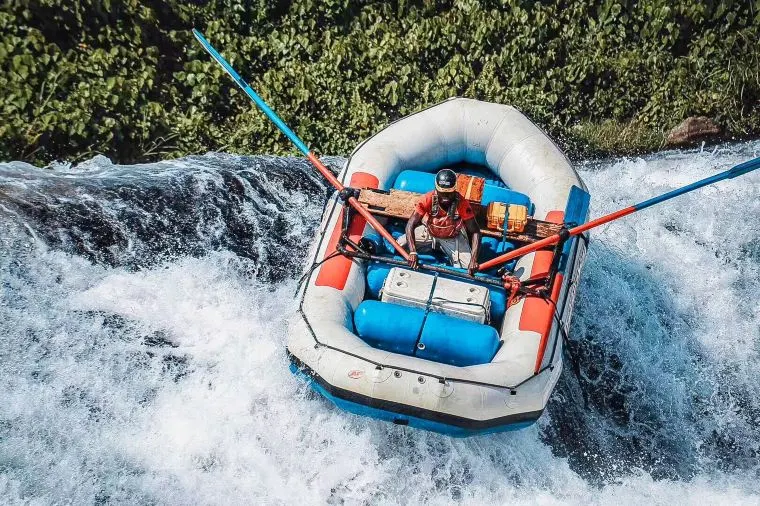
Let's take a closer look at some of the popular tourist attractions in Uganda and their cost ranges in US dollars:
- Bwindi Impenetrable National Park - Gorilla Trekking: $600 - $1,500 per person
- Murchison Falls National Park - Game Drives: $40 - $150 per person
- Queen Elizabeth National Park - Boat Safaris: $30 - $100 per person
- Kibale National Park - Chimpanzee Tracking: $50 - $150 per person
- Lake Bunyonyi - Canoeing and Island Hopping: $10 - $30 per person
- Mgahinga Gorilla National Park - Golden Monkey Tracking: $50 - $100 per person
- Jinja - White Water Rafting on the Nile: $50 - $150 per person
- Sipi Falls - Hiking and Waterfall Tours: $5 - $20 per person
These are just a few examples of the incredible sights and activities you can enjoy in Uganda. Remember, prices may vary depending on the season and availability, so it's always a good idea to check with local tour operators or travel agencies for the most up-to-date information.
But what if you're on a tight budget? Don't worry, Uganda also offers plenty of free or low-cost sightseeing options. You can explore the bustling markets of Kampala, visit the historical Kasubi Tombs, or take a stroll along the scenic shores of Lake Victoria - all without breaking the bank.
So, whether you're a luxury traveler or a budget backpacker, Uganda has something to offer for everyone. Start planning your trip today and get ready to embark on an unforgettable adventure in the heart of Africa.
- How much does it cost for Wi-Fi & communication when traveling to Uganda?
When planning a trip to Uganda, it's essential to consider the cost of Wi-Fi and communication to stay connected while exploring this beautiful country. Let's dive into the options and cost range in US dollars for accessing Wi-Fi in Uganda, ensuring you have all the information you need to make an informed decision. One option is to rent a Wi-Fi router, which allows you to have your own personal hotspot wherever you go. Depending on the rental company and plan you choose, the cost can range from $5 to $15 per day. This option provides convenience and flexibility, especially if you're traveling with a group or have multiple devices that require internet access. Another option is to purchase a local SIM card, which gives you access to data plans provided by various providers in Uganda. The cost of a SIM card can range from $1 to $5, depending on the provider. Data plans vary in price, starting from as low as $2 for a few hundred megabytes to $20 for several gigabytes. This option is ideal if you have an unlocked phone and prefer to have a local number during your stay. If you're looking for free Wi-Fi, some hotels and accommodations in Uganda offer this amenity for their guests. It's always a good idea to check before booking to ensure you can stay connected without any additional cost. Additionally, there are smartphone apps like "WiFi Map" and "Instabridge" that provide access to free Wi-Fi hotspots throughout Uganda, making it easier for you to find a connection while on the go. It's important to note that the cost of Wi-Fi in Uganda can vary depending on the method of access and the data plan you choose. However, with the options mentioned above, there are plenty of ways for travelers to stay connected and share their incredible experiences while exploring Uganda. So, whether you're capturing the breathtaking landscapes or sharing your adventures with loved ones back home, staying connected is now more accessible than ever.
- How much does it cost for a visa when traveling to Uganda?
Planning a trip to Uganda? Let's talk about the cost of obtaining a visa for this beautiful East African country. The price range for visa applications, denominated in US dollars, varies depending on your country of citizenship and the type of passport application. For example, citizens from the United States can expect to pay around $50 for a single-entry visa, while citizens from the United Kingdom may have to shell out approximately $100 for the same type of visa. It's important to note that some countries enjoy visa-free access to Uganda, so make sure to check if you fall into this lucky category.
When it comes to visa application fees, it's crucial to remember that they can differ based on your country of citizenship and the specific type of application you require. Moreover, certain countries might impose additional charges for visa applications or other travel documents. To ensure you have the most accurate and up-to-date information on passport and visa requirements, as well as fees, it's always wise to consult your local embassy or consulate. They will provide you with the necessary guidance to make your journey to Uganda as smooth as possible.
- How much does it cost for insurance when traveling to Uganda?
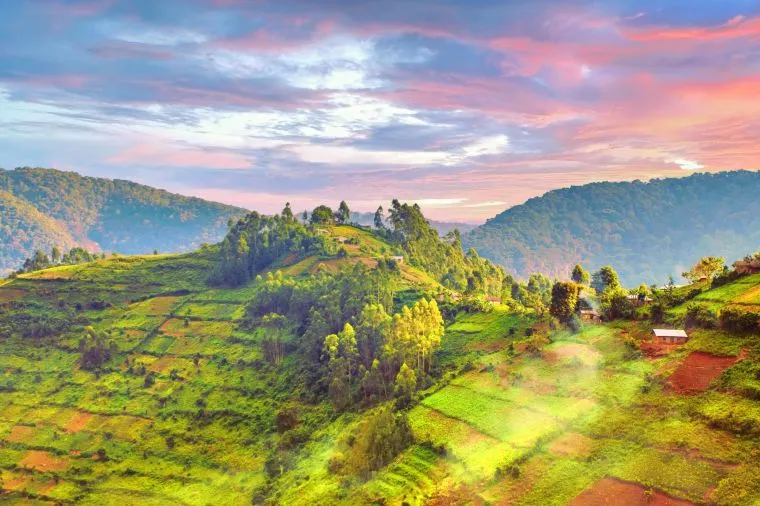
The cost of insurance for a trip to Uganda can vary depending on several factors. These include your age, the length of your trip, the type of coverage you need, and the insurance provider you choose. To give you a general idea of the costs involved, here are some guidelines for travel insurance:
For a single trip, the cost range of travel insurance can be anywhere from $50 to $200. This will depend on the duration of your trip and the level of coverage you require. It's important to note that these prices are in US dollars.
If you are a frequent traveler and plan to visit Uganda multiple times within a year, an annual travel insurance policy might be more suitable for you. The cost range for this type of policy can be between $200 and $500, depending on the coverage and duration of your trips.
For those who want comprehensive coverage that includes not only medical expenses but also trip cancellation, baggage loss, and other unforeseen events, a comprehensive travel insurance policy is recommended. The cost range for this type of policy can be anywhere from $100 to $300.
It's important to compare travel insurance policies from different providers to find the coverage that best meets your needs and budget. Make sure to carefully read the policy details and understand what is and isn't covered, as well as any deductibles or exclusions. Additionally, some credit cards and travel booking sites offer travel insurance as a benefit or add-on, so be sure to explore those options as well.
In conclusion, when planning a trip to Uganda, it's essential to consider the cost of travel insurance. By understanding the factors that influence the cost and comparing policies from different providers, you can find the coverage that suits your needs and budget. Remember to read the fine print and be aware of any exclusions or limitations.
- How much does it cost for family, couples or single when traveling to Uganda?

The cost of traveling to the country can vary widely depending on a number of factors, such as the length of the trip, the type of accommodation, the level of luxury, the activities planned, and the number of travelers. Here are some estimated costs for a trip to the country:
Airfare: The cost of airfare to the can vary depending on the departure city and the time of year. You can expect to pay anywhere from a few hundred to several thousand dollars for a round-trip ticket from the United States to Uganda per person.
Accommodation: When it comes to accommodation, you have a range of options. For budget travelers, you can find a decent hotel or hostel for as low as $20 per night. If you prefer something more comfortable, mid-range hotels and luxury hotels can cost you anywhere from $50 to $200 per night.
Food and drink: The cost of food and drink in Uganda can be quite affordable. A budget meal at a local restaurant can cost you around $5, while a mid-range meal can go up to $15 per person.
Transportation: Getting around in Uganda is relatively inexpensive. A single metro or train ticket can cost you around $1, while a long-distance bullet train ticket can range from $10 to $50. Taxis and car rentals are also available, but they can add to your transportation costs.
Overall, the cost of traveling to Uganda can range from a few hundred to several thousand dollars per person, depending on your travel style and preferences. Whether you are a family, a couple, or a single traveler, you can expect to spend around $500 to $5000 for a trip to Uganda, including airfare, accommodation, food, and transportation.
- Methods to Save Money When Traveling to Uganda
Planning a trip to Uganda? Exciting adventures await you in this vibrant East African country. However, it's essential to keep an eye on your budget to make the most of your experience. Here are some savvy ways to save money during your Ugandan escapade.
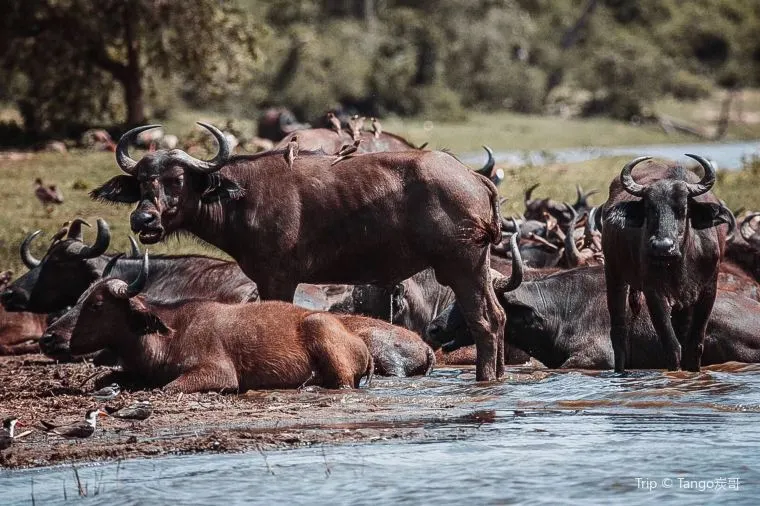
First and foremost, consider booking your flights and accommodations in advance. By doing so, you can take advantage of early bird discounts and secure the best deals. Additionally, be flexible with your travel dates to snag the cheapest fares available. Remember, the early bird catches the worm!
When it comes to exploring Uganda's stunning landscapes and wildlife, consider joining group tours or hiring local guides. Not only will this provide you with a more immersive experience, but it can also help you save money. Splitting costs with fellow travelers or sharing transportation expenses can significantly reduce your overall trip expenses.
Another great way to save money is by opting for local transportation. Instead of relying solely on taxis or private transfers, try using public buses or shared minivans, known as matatus. Not only will this give you a taste of the local culture, but it will also save you a considerable amount of money. Just be prepared for a lively and colorful journey!
When it comes to dining, explore local eateries and street food stalls. Not only will you get to savor authentic Ugandan cuisine, but you'll also save a bundle compared to dining in upscale restaurants. Don't be afraid to try the local delicacies like matoke and rolex – they are delicious and budget-friendly!
Lastly, consider staying in budget accommodations such as guesthouses or hostels. These options provide comfortable and affordable lodging, allowing you to save money for other memorable experiences. Plus, you might even meet fellow travelers and exchange valuable tips and stories!
So, if you're planning a trip to Uganda, remember these money-saving methods. By being proactive and resourceful, you can make your adventure unforgettable without breaking the bank. Start planning today and get ready for an incredible journey through the heart of Africa!
- Tips for Traveling to Uganda
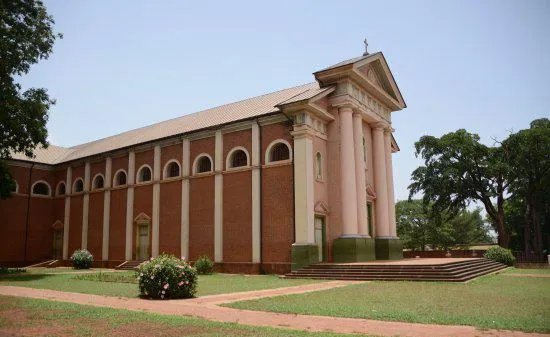
Are you planning a trip to the stunning country of Uganda? Well, buckle up and get ready for an adventure like no other! Uganda, known as the "Pearl of Africa," offers a plethora of breathtaking landscapes, diverse wildlife, and vibrant cultures that will leave you in awe. But before you embark on this remarkable journey, here are eight essential tips to ensure you make the most out of your Ugandan escapade:
1. Pack Smart: When it comes to packing for Uganda, less is more. Opt for lightweight clothing, comfortable shoes, and don't forget your insect repellent. Trust me; those little critters can be quite pesky!
2. Embrace the Local Cuisine: Uganda is a food lover's paradise! Don't miss out on trying the delicious staple dish called "matooke" or indulging in a plate of mouthwatering "rolex" (a unique Ugandan street food). Your taste buds will thank you!
3. Connect with the Locals: Ugandans are known for their warm hospitality and friendly nature. Take the time to engage with the locals, learn a few phrases in their local languages, and immerse yourself in their rich cultural traditions.
4. Explore the National Parks: Uganda is home to some of the most incredible national parks in Africa. From the famous Bwindi Impenetrable Forest, where you can encounter majestic mountain gorillas, to the vast savannahs of Queen Elizabeth National Park, where you can spot the iconic African Big Five, there's no shortage of wildlife encounters.
5. Venture Off the Beaten Path: While popular tourist destinations like Kampala and Jinja are worth a visit, don't be afraid to explore the lesser-known gems of Uganda. Discover hidden waterfalls, serene lakes, and charming villages that will leave you in awe.
6. Stay Mindful of Wildlife Etiquette: When encountering wildlife in Uganda, it's crucial to respect their natural habitat. Keep a safe distance, follow the guidance of your experienced guides, and never disturb or feed the animals. Let's ensure their well-being for generations to come!
7. Capture the Moments: Uganda is a photographer's dream come true. From the vibrant landscapes to the captivating wildlife, every corner offers a picture-perfect moment. So, don't forget to bring your camera and capture the memories that will last a lifetime.
8. Embrace the Unexpected: Finally, be open to unexpected adventures and surprises along the way. Uganda is a country that will constantly amaze you, and sometimes the best experiences are the ones you never planned for.
* All user reviews in this article have been translated by machine.
* The information above is subject to change at any time. For the latest information, please check the websites of hotels and attractions.
Table of Content
- Customer Support
- Service Guarantee
- More Service Info
- About Trip.com
- Terms & Conditions
- Privacy Statement
- About Trip.com Group
Other Services
- Investor Relations
- Affiliate Program
- List Your Property
- Become a Supplier
Top luxury hotels in Uganda

Jowillis Hotel

Surjios Guest House

Sheraton Kampala Hotel
Uganda - the estimated travel expenses for food, public transport, attractions entrance and accommodation., how much does a trip to uganda cost.
Currency in Uganda is Ugandan Shilling
Uganda prices guide., if you are travelling alone to uganda, depending on your expectations, you will pay for an overnight stay from 32 usd (117,000 ugx) for a hostel to 253 usd (940,000 ugx) for a luxury hotel., the other daily costs you have to pay when travelling to uganda are:.
- Food 6.10 USD (22,000 UGX)
- Meals in restaurants 4.30 USD (16,000 UGX)
- Bottled water 0.57 USD (2,100 UGX)
- Local transportation 3.20 USD (12,000 UGX)
- Entrance tickets 16 USD (60,000 UGX)
- Alcoholic beverages 4.70 USD (17,000 UGX)
As you can see - a stay for a few days in Uganda can cost 187 USD (696,000 UGX) or 1,000 USD (3,868,000 UGX) , depending on whether you are a frugal tourist or you are planning to spend a luxurious holiday in Uganda.
How much Ugandan Shilling should I have for one week in Uganda?
If you want to spend a week in Uganda the cost of your stay will be:
- 437 USD (1,625,000 UGX) - a cheap stay for 7 days in Uganda
- 449 USD (1,667,000 UGX) - a budget travel for 7 days in Uganda
- 687 USD (2,554,000 UGX) for a one week of comfortable stay in Uganda
- 2,400 USD (9,026,000 UGX) for a week of luxury holidays in Uganda
How much money do I need per day to stay in Uganda?
If you are travelling alone to Uganda, 62 USD a day should be enough. If you choose a hotel for your stay in Uganda, the price will rise to 64 USD. A couple will have to pay around 110 USD for one day in Uganda. A family with two children should have 190 USD for one day stay in Uganda.
How to visit Uganda on a low budget? How to travel Uganda cheaply? How to save money while travelling in Uganda?
In order not to exceed reasonable expenses during a trip to Uganda, which we estimate at 64 USD (238,000 UGX) for a one day, you must comply with the following rules:
- Choose to stay in a hostel (32 USD (117,000 UGX) ) or in a cheap hotel (31 USD (115,000 UGX) ).
- Use public transport. The price for a one-way ticket is 0.81 USD (3,000 UGX) and for a monthly pass 48 USD (180,000 UGX) .
- Make your own breakfast and own dinner. Daily shopping cost in the shop is around 6.10 USD (22,000 UGX) in Uganda.
- Choose restaurants outside the city centre and close to tourist attractions. Meal in a cheap restaurant cost around 2.70 USD (10,000 UGX) in Uganda. McMeal at McDonalds (or equivalent meal in other fastfood restaurant) costs approximately 8.10 USD (29,000 UGX) .
Car-related costs are mainly fuel, road tolls and parking fees. Of course, the price depends on the purpose of the journey and energy efficiency of a vehicle.
In Uganda, you will pay for the fuel accordingly:
- Petrol price in Uganda is around: 1.60 USD (5,800 UGX)
- Diesel fuel price in Uganda is around: 1.50 USD (5,500 UGX)
- 1kg sausage: 13 USD (46,000 UGX)
- 0,5 kg bread: 1.20 USD (4,400 UGX)
- 10 eggs: 1.80 USD (6,500 UGX)
- 1kg cheese: 4.10 USD (15,000 UGX)
- 1 liter milk: 0.73 USD (2,600 UGX)
- 1 kg apples: 2.80 USD (10,000 UGX)
- Bottle of local beer (0,5 liter): 1.10 USD (4,000 UGX)
What is most famous in Uganda? How much does an average entrance to travel attractions in Uganda cost?
The most important tourist attractions in uganda that we recommend:, on warmer days, we recommend walking in parks in uganda. below is a list of the largest and most interesting parks in uganda. parks in uganda:, book the best hotels in uganda - in partnership with booking.com, compare hotel rates in uganda and save up to 80%.
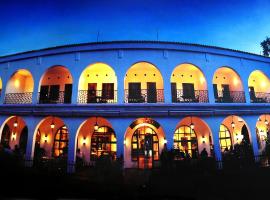
Speke Hotel 1996 Ltd

Lemala Wildwaters Lodge

Villa Kololo

Kampala Serena Hotel

Dolphin Suites

Arcadia Suites - Kampala
Compare travel cost and expenses in specific cities in uganda 2024.

Annie Palmer
Annie is travel expert at hikersbay.com (37 years old, zodiac sign: sagittarius).
- The Netherlands
- Switzerland
- The Philippines
- South Africa
- The United States of America
- New Zealand
- French Polynesia
- Our destination wedding
- Budget tips
- Travel photography
- Packing lists
- Hotel guides
- Travel guides
- Itineraries
- Work with us
- Search for: Search Button
Uganda budget: the costs and prices of backbacking trip trough Uganda!
How much does a trip through Uganda cost? Is Uganda a possible destination for backpackers? The answer to these question depends on the type of traveller you are, the activities you do and how long your trip is. But I can tell something about what we have spent in Uganda. So in this blog: how expensive was our trip through Uganda, what is a realistic daily budget and how much does food cost in Uganda?
How much money to budget for a trip through Uganda?
First a disclaimer: Everyone travels in his or her own way and has different priorities. That is completely fine, but keep this in mind when you read our costs. It can always be more expensive or cheaper.
We made a 16-day trip through Uganda where we travelled the majority of the distances in a rental car. So we backpacked in Uganda, but with the convenience of a car! We combined Uganda with Rwanda , a perfect combination for a journey of +/- three weeks. Click here to read what a realistic Rwanda budget is. Because we were travelling on a budget, we tried to camp as much as possible, something that is very doable in Uganda. We cooked many meals ourselves and we sometimes consciously chose not to do any activities or to do this in another country (eg a volcano hike and chimpanzee trecking).
What were our total spendings for Uganda?
Our budget for Uganda: Ush519,158/ €128/ $141.08 Days on or under budget Uganda: 10 Days above budget Uganda: 6
What are the prices fo transport in Uganda? – 44.8% of total budget Uganda
Total spent: Ush3,453,131/ €851.38/ $938.35 Car rental: Ush2,676,908/ €660/ $727.42 Gasoline: Ush535,809/ €129.64/ $142.88 Taxi costs: Ush84,728/ €20.89/ $23.03 Public Transportation: Ush165,684/ €40.85/ $45.02
Definitely, our biggest cost item in Uganda was transportation. This is mainly due to the four-wheel-drive that we rented (from Roadtrip Africa ), which cost € 55 a day, and the many kilometres we drove. However, since we rented a car including camping gear, our overnight costs and costs for meals were a lot lower, because we were able to cook ourselves and campsites are often cheaper than hotels, especially in the national parks.
In addition, the rented jeep gave us a lot of freedom and we were able to travel faster. If you want to spend less money, consider travelling by public transport in Uganda. In Kampala we used Uber, cheap and safe. Another way of public transport in Uganda is, of course, the Boda Boda, a motorcycle taxi. If you use such a motorcycle taxi, pay attention to its safety! We were advised against taking a Boda Boda in the evening because many accidents happen and/or robberies occur.
Free travel guide: All you need to know about the adventure capital Jinja in Uganda!
How expensive is accommodation in Uganda? – 19.8% of total budget Uganda
Total spent: Ush1,524,621 / € 375.9 / $ 413.30 Number of nights: 15 Average overnight stay for 2 people (including camping gear): Ush101,641 / € 25.06 / $ 27.61 Average camping /hostel price per night (2 people): Ush69.194 / € 17.06 / $ 18.80
Accommodations in Uganda are generally cheaper than in the surrounding countries such as Kenya or Rwanda . Of the 15 nights, we have camped 12. During the other three nights, we slept in hostels or in a guesthouse. It’s important to know is that we did not stay in a luxury hotel. A campsite usually costs $10 per person, a hostel around $30 for two people, but a nice lodge or hotel starts from $80. So if you prefer to sleep a bit more luxurious, keep more room in your budget.
One of the nicest (and most exciting) nights we had in Uganda was in the Murchison Falls National Park. We camped here inside of the park with a ranger who protected us against the wild animals (lions, hyenas, hippos). In the evening he made a campfire while we pitched our tent in the dark and cooked a nice meal. Laying in our tent at night, we heard the hyenas howling and hippos roar. The idea that they are so close was exciting anyway!
In this blog you will find our favorite hotels in Uganda ! Including campsites & lodges in national parks.
Is food or going for dinner expensive in Uganda?- 11.8% of total budget Uganda
Total spent: Ush910,757 / € 224.55 / $ 247.49 Of which expenses on restaurants: Ush467.363 / € 115.23 / $ 127 Of which groceries: Ush443,393 / € 109.32 / $ 120.49 Expenditure per day (for 2 persons): Ush56,904 / € 14.03 / $ 15.46
Food in Uganda is not expensive! We often cooked ourselves, using local ingredients from the market. In the big cities, you will find supermarkets such as the Shoprite (South African), but in smaller cities, there are only small neighbourhood supermarkets. Their variety is limited, but you can get long-life bread, peanut butter and water everywhere.
What is the price of activities in Uganda? – 22.7% of the total budget Uganda
Total spent: Ush174,530 / € 430.31 / $ 474.27 National Parks: Ush675,676 / € 166.59 / $ 183.61 Rafting: Ush507.314 / € 125.08 / $ 140 Sunset tour over the Nile: Ush199.308 / € 49.14 / $ 55 Spotting rhinos: Ush367.999 / € 90.73 / $ 100 Visit tea plantations: Ush10,000 / € 2.46 / $ 2.71
Price of a safari in Uganda
We visited the Murchison Falls National Park and the Queen Elizabeth National Park. Other National Parks we skipped because of the high costs. All safaris were self-drive safaris, whereby we were driving around in our own rented vehicle without a guide. A guide at most parks costs $20. To enter the park with your own car, you also pay a small car fee.
Reading tip: free travel guide on the Murchison Falls National Park!
What to budget for a safari in Uganda?
In most National Parks in Uganda, you can buy a 24-hour permit ($ 40 per person). This means that you can enter and leave the park (as many times as you want) within 24 hours. We tried to deal with this in a smart way, by entering (and therefor starting such a permit) in the afternoon, staying in the park until sunset (and even staying overnight in Murchison Falls) and then visit the park the next day before sunrise again. This way you are in the park during the moment that most animals are active. And in this way, you can do a safari in Uganda without breaking your budget!
As mentioned earlier, the gorilla trekking that Ries did is not included in the above costs. He paid $600 for this trekking (from 01-07-2020 this amount will be increased to $700).
Click here to read all you need to know about a gorilla trekking in Uganda (Bwindi National Park)!
Next read for your Uganda itinerary: Lake Bunyonyi !
Other expenses in Uganda – 0.9% of total budget Uganda
Total spent: Ush73,128 / € 18.03 / $ 19.87 Cellphone subscription : Ush45,142 / € 11.13 / $ 12.27 Beauty products: Ush1,744 / € 0.43 / $ 0.48 Tip: Ush6.854 / € 1.69 / $ 1.86 Bribery: Ush20,000 / € 4.78 / $ 5.27
To be reachable, we bought a local SIM card from Africell (but for better coverage in terms of reach, we recommend MTN as a provider). We had 6GB for 30 days + 35 minutes of calling. For this, we paid 40,000 USH (just under 10 euros). In addition, we had to pay an additional tax to be able to use social media, the costs of which are 6,000 USH.
Prices of food and general expenses in Uganda
- 1 Kilo of apples: Ush10,000 / €2.46 / $2,71
- 500 Ml olive oil : Ush39,743 / €9.80 / $10.80
- Mango : Ush2000 / €0.49 / $0.541
- Bag of chips: Ush4000 / €0.99 / $1,09
- 1 Kilo of bananas : Ush2000 / €0.49 / $0.54
- 500L Yoghurt: Ush3500 / €0.86 / $0.951
- Bread: Ush3000 / €0.74 / $0.871
- Avocado: Ush1000 / €0.25 / $0.28
- Pack of milk (1L): Ush3000 / €0.74 / $0.81
- Nutella (375 ML): Ush23.183 / €5.72 / $6.30
- Bottle of water (1.5 L): Ush4000 / €0.99 / $1.09
- Wine in supermarket (750 ml): Ush38.000 / €9.37 / $10.32
- Bottle of Coca Cola (2L): Ush4500 / €1.11 / $1.22
- Beer in the supermarket : Ush4000 / €0.99 / $1.09
- Shampoo: Ush20,000 / €4.93 / $5.43
- Cappuccino: Ush10.156 / €2.5 / $2.76
- Glass of wine in restaurant: Ush15.000 / €3.70 / $4.08
- Local beer in a restaurant: Ush4000 / €0.99 / $1.09
- Simple lunch/evening meal (1 person): Ush15,000 / €3.70 / $4,071
- Liter of gas: Ush4230 / €1.04 / $1.15
Conclusion: is Uganda an expensive holiday destination?
For us, Uganda feels like the cheaper sister of Kenya where the locals are friendlier and mass tourism has not yet taken a huge flight. Activities are cheaper than in Kenya (where access to the most famous National Parks is $80 per person), staying overnight is also slightly less expensive (although you will also find super luxury and expensive lodges in Uganda) and food is tasty and cheap!
But that does not mean that Uganda is cheaper than, for example, Madagascar or countries in Southeast Asia. Public transportation is cheap but much less comfortable than in Vietnam, for example. Activities such as rafting and a gorilla trek make Uganda also an expensive destination. We have stayed well within our budget. The convenience of a car was very nice and also outweighed the extra costs that we had to make. If you want to spend less, consider leaving out a car, that saves you 55 euros a day.
What is a realistic daily budget for Uganda?
Are you travelling through Uganda on a backpackers budget or a shoestring? Then budget around 55 euros per person per day. For this amount, you mostly travel by public transport, visit some national parks, sleep in dorms and eat simple meals.
Prefer something more luxurious ? Then budget a daily budget of 90 euros per person per day. For this you have a rental car, you sometimes sleep in a beautiful lodge but you are also sometimes camping. Sometimes you cook yourself, but there is also luxury in eating out.
Click here for all Uganda blogs .
Like this post? Pin it!
Other blogs on Uganda
Best hotels & lodges for road tripping and travel in uganda, africa packing list: essential packing tips for east africa and madagascar, lake bunyonyi in uganda: all you need to know + tips on bunyonyi lake, gorilla trekking uganda experience: visiting wild mountain gorillas in bwindi np.
Hello Charlotte! I love your blog! Do you remember with which company you rented the car in Uganda? Thanks :)
Hi Sophie, Yes we rented it via Roadtrip Africa (also available in Madagascar, Kenya and Rwanda). Enjoy! Charlotte
Leave a reply Cancel reply
Your email address will not be published.
- BoB’s Epic Adventure – all about my 7 month journey
- Classic backpacker favorites
- Sleep Less, Dream More stories – Unusual accommodations
- Travel tips and tricks
- Money Matters – Travel budget & costs
- Travel gear and more
- Philippines
- Netherlands
- South Africa
- Contact BoB
- Work with BoB
- In the media

Money Matters: How much does it cost to backpack Uganda and Rwanda?
What budget do you need for your Uganda and Rwanda trip? During my recent short Rwanda and Uganda backpacking trip, I kept track of all expenses. Compared to my previous travels on the African continent, my expenses were definitely higher. Most of my costs were related to amazing and unforgettable experiences such as an ‘mountain gorilla trekking’, ‘the ‘Bisoke volcano hike’ and accommodation. I found Rwanda and Uganda quite similar in costs. So, how much does it cost to backpack Uganda and Rwanda? Find out below!
This article is part of the Money Matters series in which travelers keep their travel costs and expenses for Bunch of Backpackers. Real travelers, real expenses.
How much does it cost to backpack Uganda and Rwanda?
Total costs 14-day uganda and rwanda backpacking trip: 1328 usd , daily travel expenses uganda and rwanda*: 95 usd per day .
*These daily travel expenses are per one person per day. Including the gorilla permit (600USD), tours, souvenirs, lodging, food, drinks, transportation, entrance fees, tips etc. Excluding international flights.
p.s. My daily costs excluding the gorilla trekking would have been 50 USD per day


EXAMPLES OF PRICES IN UGANDA
These prices are per person unless stated otherwise.
Standard Uganda / Rwanda travel expenses
- A private room guesthouse: 15-25 USD
- A bed in a dormitory: 15 USD
- A short 10-minute taxi ride: 3-6 USD
- Short motoride (9 km): 1,3 USD
- A bottle of water (0,5L) at the store: 0,34 USD
- Lunch/dinner in a local restaurant: 1- 2 USD
- Dinner in a ‘Western style’ restaurant: 7-8 USD

Notable Uganda travel expenses
- Gorilla tracking permit Bwindi: 600 USD
- Porter Bwindi: 15 USD + 4 USD tip
- 4WD Bwindi Backpackers Lodge to Park entrance and from Bwindi to Kabale: 40 USD
- Boda Boda from Kisoro to Bwindi: 10,8 USD
- Bus Entebbe to Kampala: 1 USD
- Bus Kampala to Kigali : 11 USD
- Bus Kabale to Kampala: 6,45 USD
- Night boda boda from Entebbe center to airport: 4 USD
- Popcorn in the bus: 0,10 USD
- Chapati in bus: 0,4 USD
- Entrance Mengo Palace: 4 USD
- MTN sim card with credit: 1,5 USD
- Veggie burger in Bush Pig Backpackers: 5,9 USD
- 4-bed dormitory Bwindi Backpackers including breakfast: 25 USD
- Private room in Kabale Backpackers: 8 USD
- Private tree house Bushara island Lake Bunyuoni: 25 USD
- Private glamping tent Via Via Hostel Entebbe : 20 USD
- Single room Bush Pig Hostel Kampala including breakfast: 25 USD

Notable Rwanda travel expenses
- MTN sim card with one week 1,5 GB/day: 7 USD
- Bus Kigali to Kibuye: 2,7 USD
- Bus Kibuye to Gisenyi: 2,7 USD
- Bus Gisenyi to Musanze: 1,6 USD
- Bus Musanze to Cyanica border: 1 ,1 USD
- Samosa: 0,11 USD
- Nyamirambo Women’s Center walking tour: 22 USD
- Boat ride Lake Kivu (22.000 for 1 boat with 2 persons): 12,6 USD
- Guided hill hike Gisenyi: 5,7 USD
- Traditional canoe Gisenyi: 7 USD
- Moto to Cyuza island dock: 3,4 USD
- Boat Cyuza island (return): 14 USD
- Moto to Volcanoes NP from Musanze: 2,28 USD
- Volcanoes NP Bisoke volcano hike: 75 USD
- Porter Bisoke: 11,4 USD
- 4-p dormitory Mijo Hostel Kigali: 17 USD
- Private budget room Home Saint Jean Kibuye: 12,6 USD
- Private glamping tent Inzu Lodge Gisenyi: 28 USD
- Camping with my own tent Cyuza island: 13,7 USD
- Private room Amahoro Guesthouse: 18 USD

ABOUT THIS BACKPACKING TRIP
About the backpacker: Manouk, the Netherlands, 32 years Destination and travel period: Uganda and Rwanda in November 2018 for 14 days Visited places: Entebbe, Kampala, Kigali, Kibuye, Gisenyi, Musanze/Volcanoes NP, Bwindi NP, Lake Bunyuoni. Type of trip: Solo, independently Accommodation*: budget / standard (mainly hostels, guesthouses, glamping) Transportation*: budget / standard (mostly public transportation, 2x shared car) Food*: budget (local restaurants) Currency rate December 2018: 1 euro = 4217 Ugandan Shilling, 1 euro = 992 Rwandan Franc
*4 options: basic, budget, standard and luxury
–> Like this article :)? Don’t forget to book your Uganda and Rwanda accommodation through Hostelworld.com or Booking.com ! Booking through these links won’t cost you anything extra, but it will get me a small commission to keep this website up and running (and ad free)! ~ Thanks! Manouk

RWANDA AND UGANDA BUDGET TIPS
- If traveling in low season, don’t book beforehand. Often I would just turn up at the accommodation and it was cheaper than the prices on Booking.com or Hostelworld.com
- If you would like to save money: bring a tent. I’ve splurged a bit in terms of accommodation during this trip. When traveling long-term, I use my tent more often. Camping is 5-10 USD.
- Preferably arrange activities on the spot.
- Motorcycle taxi’s (boda-boda’s in Uganda or moto’s in Rwanda) can be a bit dangerous, but they’re cheap. I’ve used them on a daily basis.
- Private cars are expensive, but sometimes ‘required’ for hiking and trekking. For example, for Volcanoes NP many people offered 4WD’s for 60-100 USD. However, I just took a boda-boda to the NP head quarters and was able to secure a free ride with other tourists. It’s always a bit of a risk to rely on hitchhiking though.
QUICK HIGHLIGHTS
- Gorilla encounter in Bwindi National Park in Uganda
- Hiking Mt. Bisoke in Volcanoes National Park in Rwanda
- Camping at Cyuza island near Musanze in Rwanda
- Chilling and relaxing at Lake Kivu in Kibuye and Gisenyi
SAVE ON PINTEREST – How much does it cost to backpack Uganda and Rwanda?

RELATED ARTICLES MORE FROM AUTHOR

How to prepare for your Danakil Depression tour in Ethiopia?

The Ultimate Guide to Backpacking Ethiopia: itinerary, budget and tips!

How much does it cost to backpack Ethiopia?

The Ethiopian Timkat festival in Aksum in 20 photographs

Update on how to get your Ethiopian visa in Khartoum, Sudan: costs and requirements

Guide to Backpacking in Zimbabwe: Route, costs and general tips!
Uganda and Rwanda are very best places for travel and getting peace..The environment is something I crave for about these places!!
LEAVE A REPLY Cancel reply
Save my name, email, and website in this browser for the next time I comment.
This site uses Akismet to reduce spam. Learn how your comment data is processed .
Recent posts
- Disclaimer / Privacy statement

How to arrange a budget Kenyan safari?

Update on how to get your Ethiopian visa in Khartoum, Sudan:...
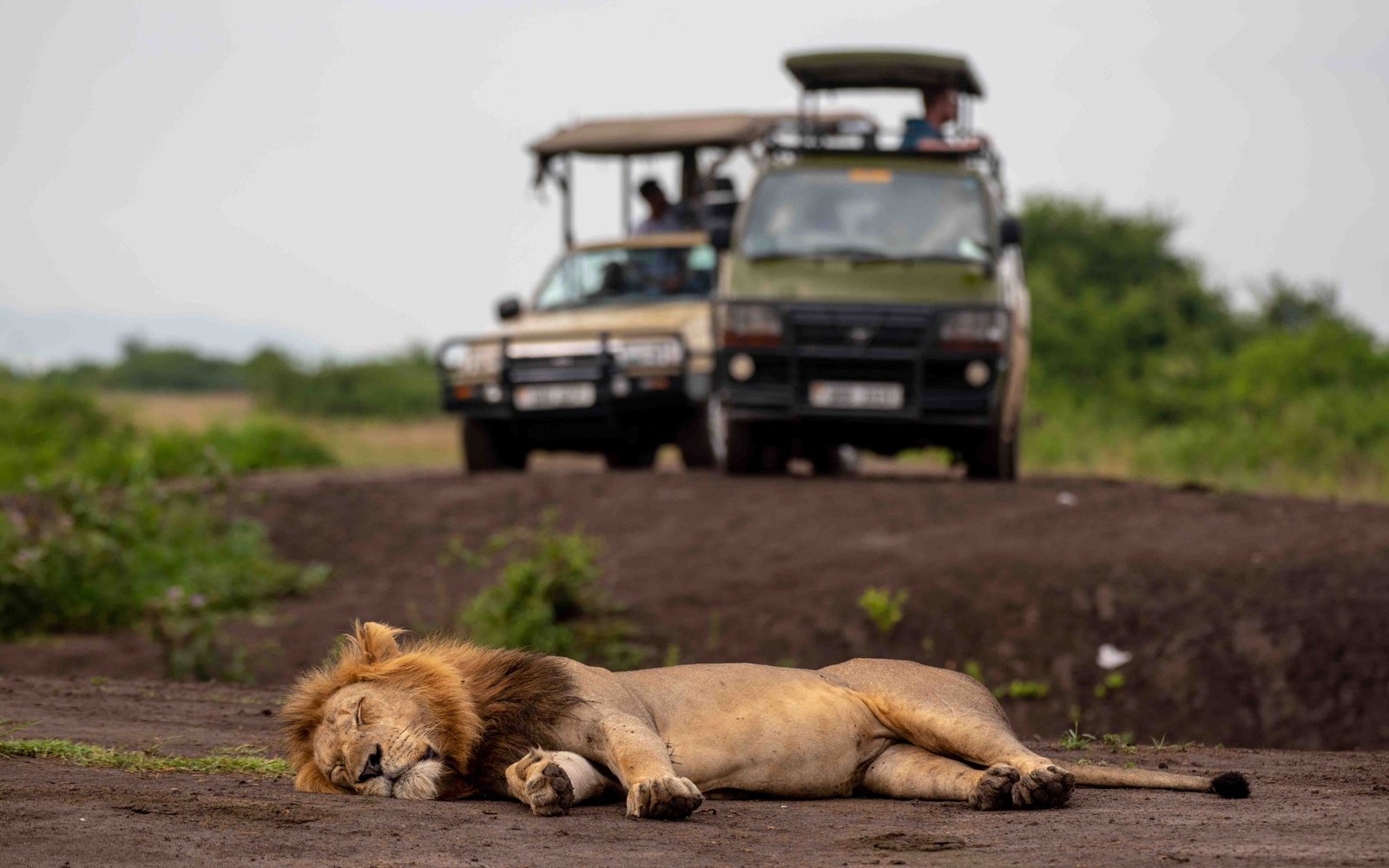
Budget Travel in Uganda
Uganda is a land of contrasts, where lush green forests meet arid savannahs, where snow-capped mountains overlook volcanic lakes, and where endangered mountain gorillas share their habitat with tree-climbing lions. Winston Churchill famously called Uganda “the pearl of Africa” for its natural beauty and cultural diversity. But is it possible to travel Uganda on a budget? The answer is yes, if you know how to plan your trip and where to look for the best deals. In this guide, we will explore some of the ways you can save money while traveling in Uganda, without compromising on the quality of your experience.
Introduction to Uganda
Uganda is a landlocked country in East Africa, bordered by Kenya, Tanzania, Rwanda, the Democratic Republic of Congo, and South Sudan. It covers an area of about 241,000 square kilometers (93,000 square miles), which is roughly the size of Oregon or the United Kingdom. Uganda has a population of about 45 million people, belonging to over 50 ethnic groups and speaking over 40 languages. The official languages are English and Swahili, but many people also speak Luganda, Runyankole, or other local languages.
Uganda’s geography is diverse and varied, ranging from the low-lying shores of Lake Victoria (the largest lake in Africa and the source of the Nile River) to the high peaks of the Rwenzori Mountains (the third highest mountain range in Africa). Uganda is home to 10 national parks and 12 wildlife reserves, which protect some of the most endangered and unique wildlife species in the world, such as mountain gorillas, chimpanzees, elephants, rhinos, hippos, crocodiles, zebras, giraffes, and more. Uganda is also known for its rich cultural heritage, which includes ancient kingdoms, colonial history, vibrant festivals, colorful markets, and friendly people.
Uganda is a year-round destination, but the best time to visit depends on what you want to see and do. The dry seasons are from December to February and from June to August, which are ideal for wildlife viewing and hiking. The wet seasons are from March to May and from September to November, which are good for birdwatching and rafting. The average temperature in Uganda is about 25°C (77°F), but it can vary depending on the altitude and region. The average visa cost for Uganda is $50 USD for a single-entry tourist visa valid for 90 days. You can apply online or at the border.
Popular Budget Uganda Safaris
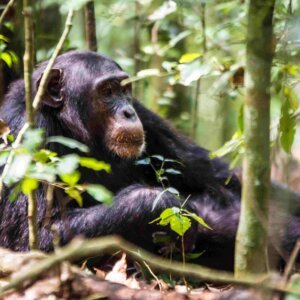
10 Day Uganda Safari Wildlife, Gorillas and Chimpanzees
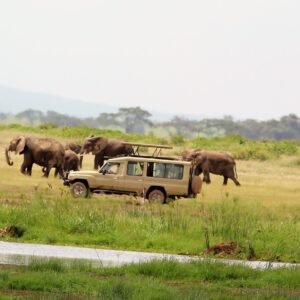
11 Day Kenya Wildlife & Uganda Gorilla Safari

12 Ultimate Uganda Safari Holiday
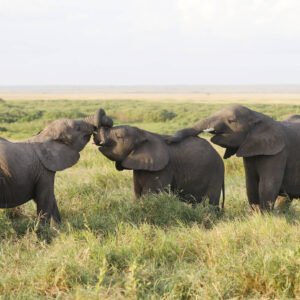
13 Day Best of Uganda & Kenya Safari

13 Day Kenya, Uganda Wildlife & Primates Safari

14 Day Rwenzori Hike, Wildlife & Gorilla Trekking Safari

15 Day Uganda Safari, Adventure & Wildlife
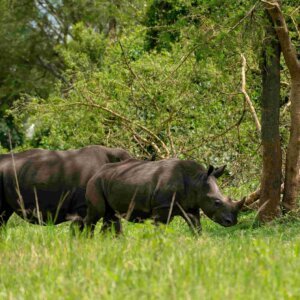
17 Day Ultimate Uganda Wildlife & Primates Safari

20 Day Uganda Safari (All Major National Parks)
Budget-friendly accommodation.
One of the biggest expenses when traveling in Uganda is accommodation. However, there are plenty of options for budget travelers who are looking for a comfortable and safe place to stay. Here are some of the most common types of accommodation in Uganda and their average prices:
- Hostels: Hostels are a great way to meet other travelers and save money on accommodation. They usually offer dorm beds or private rooms with shared bathrooms and facilities. Some hostels also have common areas, kitchens, gardens, or bars where you can socialize and relax. The average price for a hostel bed in Uganda is about $10 USD per night.
- Guesthouses: Guesthouses are similar to hostels but more family-friendly and less party-oriented. They usually offer private rooms with ensuite or shared bathrooms and facilities. Some guesthouses also have restaurants or cafes where you can enjoy local food and drinks. The average price for a guesthouse room in Uganda is about $15 USD per night.
- Camping: Camping is another option for budget travelers who want to get closer to nature and enjoy the outdoors. You can either bring your own tent or rent one from a campsite or lodge. Some campsites also have shared bathrooms and facilities. The average price for a camping spot in Uganda is about $5 USD per night.
Some tips for finding the best deals on accommodation in Uganda are:
- Book online: You can use websites like Booking.com or Hostelworld.com to compare prices and reviews of different accommodation options in Uganda. You can also find discounts or deals if you book in advance or for longer stays.
- Negotiate: You can try to negotiate the price of your accommodation if you book directly with the owner or manager. You can also ask for discounts if you pay in cash or if you are traveling during low season or weekdays.
- Be flexible: You can save money on accommodation if you are flexible with your dates, location, or preferences. You can also look for alternative options like couchsurfing or homestays where you can stay with locals for free or for a small fee.
Transportation Options
Another major expense when traveling in Uganda is transportation. However, there are various transportation options for budget travelers within Uganda, including public buses, shared taxis, and motorcycle taxis (boda bodas). Here are some of the pros and cons of each option and their average prices:
- Public buses: Public buses are the cheapest and most direct way to get to major destinations in Uganda. They usually run on fixed routes and schedules, and stop at designated bus stations or terminals. They are also relatively comfortable and safe, as they have seats, windows, and luggage compartments. The average price for a public bus ticket in Uganda is about $5 USD per 100 kilometers (62 miles).
- Shared taxis: Shared taxis are also known as matatus or minibuses. They are a common and convenient way to get around Uganda, especially for shorter distances or remote areas. They usually run on flexible routes and schedules, and stop anywhere along the way. They are also faster and more comfortable than public buses, as they have air conditioning, music, and fewer passengers. The average price for a shared taxi fare in Uganda is about $1 USD per 10 kilometers (6 miles).
- Motorcycle taxis: Motorcycle taxis are also known as boda bodas or piki pikis. They are the fastest and most fun way to get around Uganda, especially in urban areas or traffic jams. They usually run on demand and can take you anywhere you want. They are also the most adventurous and risky way to travel in Uganda, as they have no helmets, seat belts, or insurance. The average price for a motorcycle taxi ride in Uganda is about $0.5 USD per 5 kilometers (3 miles).
Some tips for saving money on transportation in Uganda are:
- Use public transportation: You can use public transportation as much as possible to save money on transportation in Uganda. You can also use apps like Google Maps or Moovit to plan your routes and find the best options for your destination.
- Bargain: You can bargain the price of your transportation if you use shared taxis or motorcycle taxis. You can also ask for discounts if you travel with a group or if you use the same driver multiple times.
- Be safe: You can be safe when traveling in Uganda by following some basic rules. You can avoid traveling at night or in bad weather, wear a seat belt or a helmet, carry your valuables with you, and check the condition of the vehicle before boarding.
Money-Saving Tips
Besides saving money on accommodation and transportation, there are other ways you can save money while traveling in Uganda. Here are some practical tips and tricks for traveling in Uganda on a budget:
- Bargain: Bargaining is a common practice in Uganda, especially in markets, shops, or street stalls. You can bargain the price of anything from souvenirs, clothes, food, or services. You can start by offering half of the asking price and then work your way up until you reach a fair deal.
- Use local markets: Local markets are the best places to find cheap and fresh food and souvenirs in Uganda. You can buy fruits, vegetables, bread, cheese, meat, eggs, or spices from local farmers or vendors. You can also buy handicrafts, jewelry, fabrics, or art from local artisans or traders.
- Take advantage of free or low-cost activities: There are many free or low-cost activities you can enjoy in Uganda that will enrich your travel experience. You can visit museums, churches, mosques, monuments, or gardens that have no or minimal entrance fees. You can also hike, bike, swim, fish, or birdwatch in natural parks or reserves that have low or affordable conservation fees.
Uganda is a beautiful and diverse country that offers a lot of opportunities for adventure and discovery. It is also a budget-friendly destination that can be traveled without breaking the bank. By following some of the tips and tricks we shared in this guide, you can plan your trip and enjoy your stay in Uganda without spending a fortune.
Get in Touch with Our Safari Experts
© 2017 Tusker Trails Holidays (Ltd). All rights reserved.
Cookies on GOV.UK
We use some essential cookies to make this website work.
We’d like to set additional cookies to understand how you use GOV.UK, remember your settings and improve government services.
We also use cookies set by other sites to help us deliver content from their services.
You have accepted additional cookies. You can change your cookie settings at any time.
You have rejected additional cookies. You can change your cookie settings at any time.
Warnings and insurance
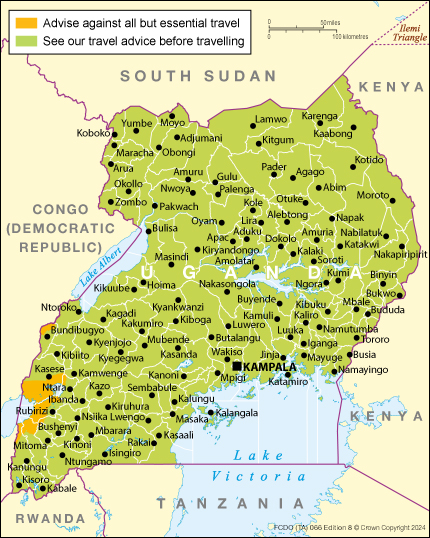
Your travel insurance could be invalidated if you travel against advice from the Foreign, Commonwealth & Development Office (FCDO).
Areas where FCDO advises against all but essential travel
Western uganda.
FCDO advises against all but essential travel to:
- Queen Elizabeth National Park
- the area immediately south-west of Kasese town – from the border with the Democratic Republic of the Congo ( DRC ) at Kyabikere extending eastwards up to and including the A109 road and southwards to Queen Elizabeth National Park
- Semuliki National Park
Find out more about why FCDO advises against travel .
Before you travel
No travel can be guaranteed safe. Read all the advice in this guide. You may also find it helpful to:
- see general advice for women travellers
- read our guide on disability and travel abroad
- see general advice for LGBT+ travellers
- read about safety for solo and independent travel
- see advice on volunteering and adventure travel abroad
Travel insurance
If you choose to travel, research your destinations and get appropriate travel insurance . Insurance should cover your itinerary, planned activities and expenses in an emergency.
About FCDO travel advice
FCDO provides advice about risks of travel to help you make informed decisions. Find out more about FCDO travel advice .
Follow and contact FCDO travel on Twitter , Facebook and Instagram . You can also sign up to get email notifications when this advice is updated.
Related content
Is this page useful.
- Yes this page is useful
- No this page is not useful
Help us improve GOV.UK
Don’t include personal or financial information like your National Insurance number or credit card details.
To help us improve GOV.UK, we’d like to know more about your visit today. Please fill in this survey (opens in a new tab) .

Uganda Currency: 12 Things to Know (Money, Shillings, and Costs)
Heading to Uganda? Congratulations! In this post, you’ll learn about Uganda currency (shillings), banknotes and coins, exchange rates and more. Learn how to handle your money while visiting Uganda, including ATMs, credit cards, and travelers checks.
Uganda Currency: 12 Things to Know about Shillings
So, let’s talk about money. When traveling to Uganda, you will need to know several things about how to use Uganda currency as well as a few money safety tips. Uganda is mostly a cash-based society, and the country’s official currency is the Ugandan Shilling (UGX) which is also represented by the symbol USh.
The Money of Uganda
Watch on YouTube
You may discover that many Uganda airlines, hotels, safari agencies, and the Uganda Wildlife Authority will charge you in U.S. dollars, but you can pay in Ugandan shillings if you wish. Elsewhere in Uganda, you will most likely find it easier to use Ugandan money. To maximize your travel experience, this article discusses 12 things you need to know about the Uganda Shilling.
1. History and Family of Banknotes of the Uganda Shilling
Would you believe that Uganda currency has changed seven times in the last 50 years?
After Uganda’s independence from Great Britain in 1962 and consequently the collapse of the Eastern African Currency Board in 1966, the Bank of Uganda introduced its first banknotes of 5, 10 and 20 shillings.
As Uganda politics evolved and changed with various leaders so did the currency with many different banknotes being introduced and modified to reflect the leadership present at the time. The latest change was in May 2010.
Current Uganda Banknotes
- 50,000 shillings
- 20,000 shillings
- 10,000 shillings
- 5,000 shillings
- 2,000 shillings
- 1,000 shillings
Current Uganda Coins
- 50 shillings
- 100 shillings
- 200 shillings
- 500 shillings
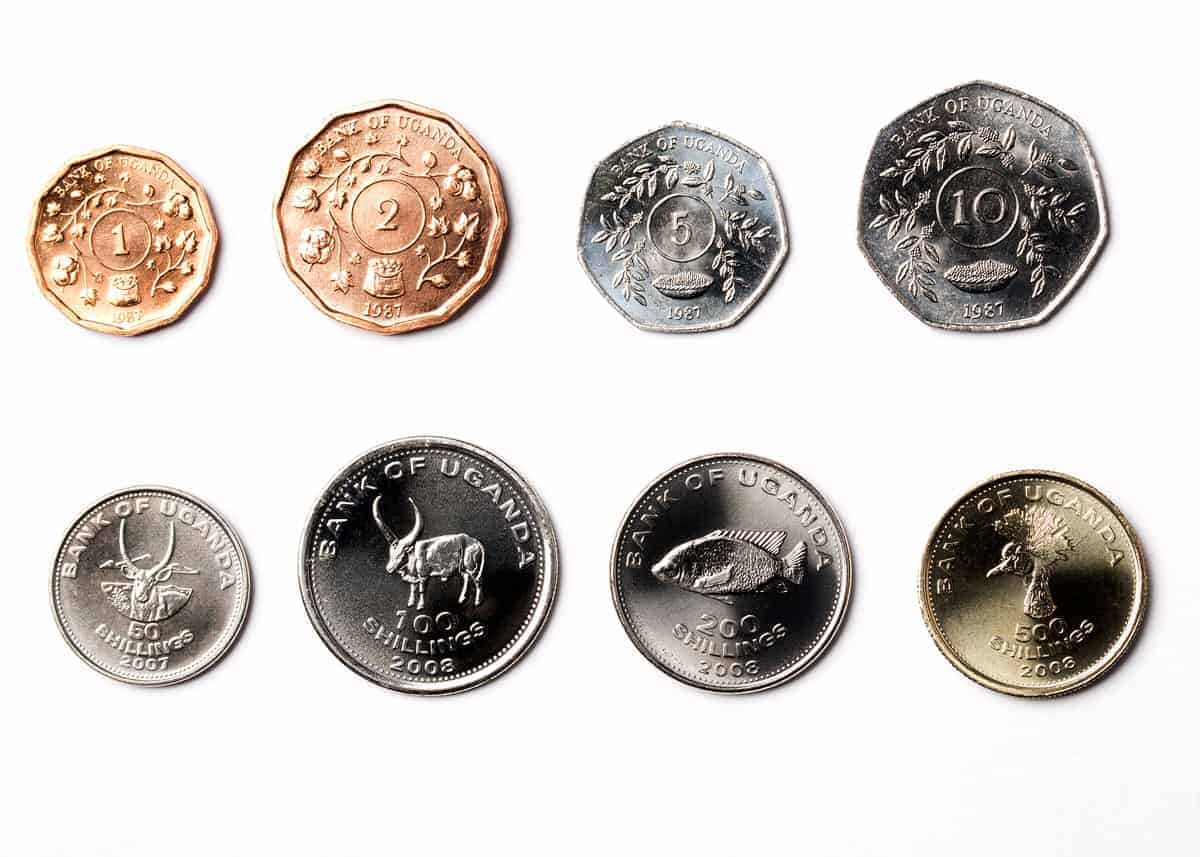
2. Uganda Heritage Symbols on Ugandan Banknotes
Take a look at the emblems on Uganda banknotes, and you will get an insight into the country’s natural, cultural, and historical heritage.
For example, on the 50,000 shillings note , you will see an image of the Independence Monument, a crested crane, the Bwindi tropical rainforest, silverback mountain gorillas , and the outline of a man wearing a Karimojong headdress. The International Bank Note Society has rated this Ugandan banknote as one of the most beautiful currency in the world.
- The 20,000 shillings note depicts the country’s coat of arms, a traditional drum, the Nile River, the Parliament Building in Kampala, and the Ugandan kob. You will also see symbols of coffee and cotton because these two cash crops are important to the country’s economy.
- Musical instruments on the 10,000 shillings note signify Uganda’s musical heritage while the coat of arms symbol displays spears and the waves of Lake Victoria . On the backside of this note, you will see an image of the Kiira Hydroelectric Power Station.
- In addition to the coat of arms on the 5,000 shillings note , you will see illustrations of Lake Bunyonyi and the MV Kaawa Ferry on Lake Victoria.
- On the 2,000 shillings note are the illustrations of the Speke Memorial, an outline map of Uganda with the equator, a woman uplifting a child, the Nile River, and the crested crane .
- The 1,000 shillings note depicts Uganda’s agriculture with symbols of a farmer working on a banana plantation and trucks in front of grain silos.
More reading: Is Uganda Safe?
3. Six Counterfeit Security Features
Uganda is the first country in Africa to use the advanced optical security feature against counterfeiting known as SPARK. Other security features on Uganda banknotes include:
- High-quality paper that is difficult to reproduce
- Watermark image of the crested crane with the denomination below the beak
- Special thread woven into the paper that changes colors when tilted.
- Foiled images on each denomination that change patterns at different angles.
- See-through section that displays symbols from the back and front sides simultaneously when held to the light
- Advanced optical security feature (SPARK)
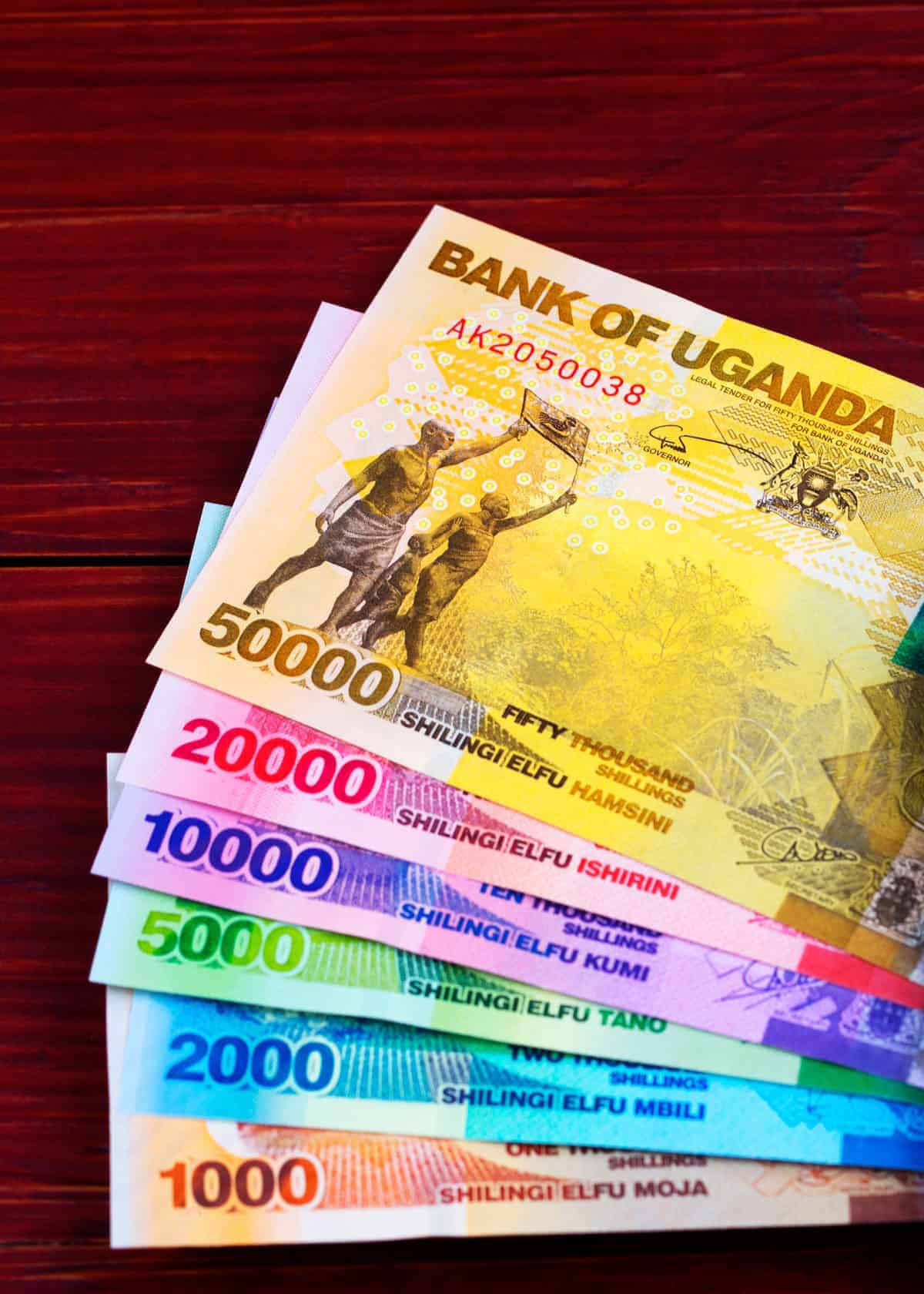
Here are 15 Incredible Things to do in Uganda
4. Stability of the Uganda Shilling
The Uganda shilling is a stable, convertible Uganda currency that floats against foreign currency on the international market. For you as a tourist, this means that you can exchange your home currency for shillings to pay for products and services everywhere in Uganda.
However, you will find that the euro (EUR), Great Britain pound (GBP), and the U.S. dollar (USD) are used frequently throughout Uganda. Many tour operators, such as those for gorilla trekking, and upscale hotels often quote in U.S. dollars, but you can use Uganda shillings for payment.
5. Exchanging Your Money to Uganda Shillings
When traveling to Uganda, you can exchange your home currency for Uganda currency before departure or after arrival. In Uganda, banks and forex bureaus (bureaux de change) in major towns will convert your money to the local currency.
When exchanging your money to Uganda shillings, it is recommended that you request smaller banknotes because you may find it difficult to obtain change for larger notes in some places. Plus, smaller notes make it easier for tipping.
If you are traveling from the United States , you must know that Uganda does not accept dollar bills any older than 2006 due to previous forgery experiences. Also, you should make sure your bills are in good condition when exchanging them for Uganda shillings to ensure acceptance and maybe even a better rate.
If you want to get the best possible exchange rate after arriving in Uganda, the best place to do so is in Kampala , the country’s capital city. If you are planning on gorilla trekking or going on a wildlife safari, the UWA (Uganda Wildlife Authority) accepts euros, dollars and pounds and will also offer you fair currency exchange rates for gorilla permits and national park fees.
Before traveling to Uganda, you can go online and check various financial websites for the current exchange rate. Some of the more widely known sites include Google Finance, Yahoo! Finance, and OANDA. As of the writing of this article, the exchange rate is as follows:
- 1 EUR = 4379.64 UGX
- 1 USD = 3783.55 UGX
- 1 GBP = 4950.62 UGX
- 1 CAD = 2901.38 UGX
- 1 AUD = 2691.62 UGX
6. Using ATMs in Uganda
If you wish to use an ATM while in Uganda, you will most likely need a Visa debit or credit card because Visa is what is preferred in this country.
The best places to use an ATM machine are the largest and most common banks found throughout the country, which include Barclays, Crane, Stanbic, Orient, Centenary, and Standard Chartered. You will find at least one of these banks even in smaller towns.
4 Tips For Using ATMs in Uganda:
Prior to traveling, alert your home bank that you will be using your card in Uganda or else you may find it denied.
- Be aware of the daily cash withdrawal limit.
- Use ATMs that offer privacy and protect your PIN number as you punch it in.
- Do not accept assistance from volunteers at an ATM because they could be local scammers.
- Try not to let your cash run out because you may find some ATMs empty or non-working.
7. Using Your Credit Card in Uganda
Credit cards are not as widely used in Uganda as in other countries except in major hotels, posh restaurants and safari lodges. You should be aware that when using your credit card in Uganda, a surcharge of anywhere between 5 percent and 15 percent could be added to your bill.
To reduce your risks of credit card fraud and theft, it is best to not use your credit card in Uganda because scamming technology is becoming more sophisticated. However, if you do choose to use a credit card, you will need to use a Visa because most other cards are not accepted, except for MasterCard occasionally.
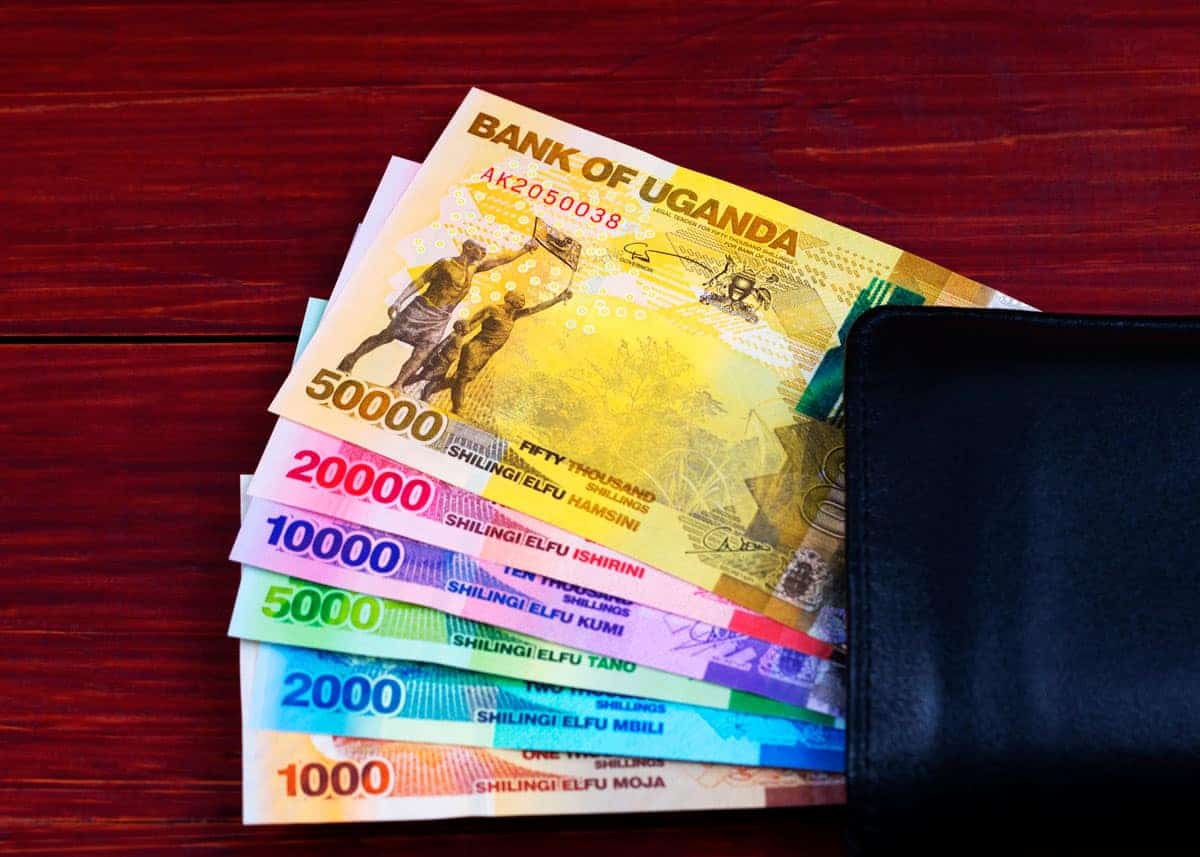
Hungry for local flavors? Here are 16 Must Try Dishes for Your Trip
8. Should You Use Traveler’s Cheques in Uganda?
With the exception of major international banks such as Barclays, Stanbic, and Standard Chartered, it is probably not a good idea to use traveler’s cheques in Uganda as many places will either not accept them or will exchange them at a terribly low rate and with extra fees.
9. Is it Okay to Bargain in Uganda?
One of the fun things about visiting other countries is bargaining with vendors over souvenirs and handicrafts.
In Uganda, some bargaining is acceptable at markets and family-owned stores, but make sure you take a kind and light-hearted approach while engaging in this because aggressive haggling is unwelcome. In well-established shops such as those in Kampala, you will find most items already priced and non-negotiable.
10. Tipping in Uganda
Tipping in Uganda is not really expected, but since you will find that many Ugandans are very poor with wages much lower than what you are accustomed, tipping vendors in Uganda shillings is much appreciated.
In restaurants, a reasonable tip is between 1,000 USh and 1,500 USh while for a national park ranger or safari guide, a good tip may be between 5,000 USh and 10,000 USh. For a taxi driver, you can just round up the fare to next whole amount as a tip.
11. Money Safety Tips While Visiting Uganda
In general, traveling in Uganda is safe, but you should always practice safety when it comes to your money. Here are a few tips:
- Wear anti-theft articles to hide your cash such a money belt or slash-proof backpack with secret pockets. Otherwise, keep your money in your front pocket instead of the back pocket.
- Don’t use ATMs in bars or anywhere that people could be watching you withdraw your money.
- Don’t flash your money in public places which could attract unwanted attention.
- Try not to use large bills in restaurants, bars or markets because this could make you a target for pickpockets.
- Ignore the money changers that frequent border crossings. They are often con artists who will cheat you with low exchange rates or counterfeit Uganda currency notes.
A little travel insurance is always a good idea. It covers emergency medical care, plus some policies will cover your belongings, including your camera and documents.
12. What’s the Sign and Code for Ugandan Shillings?
The shilling is the official currency in Uganda. Here is the sign and the code for the shilling.
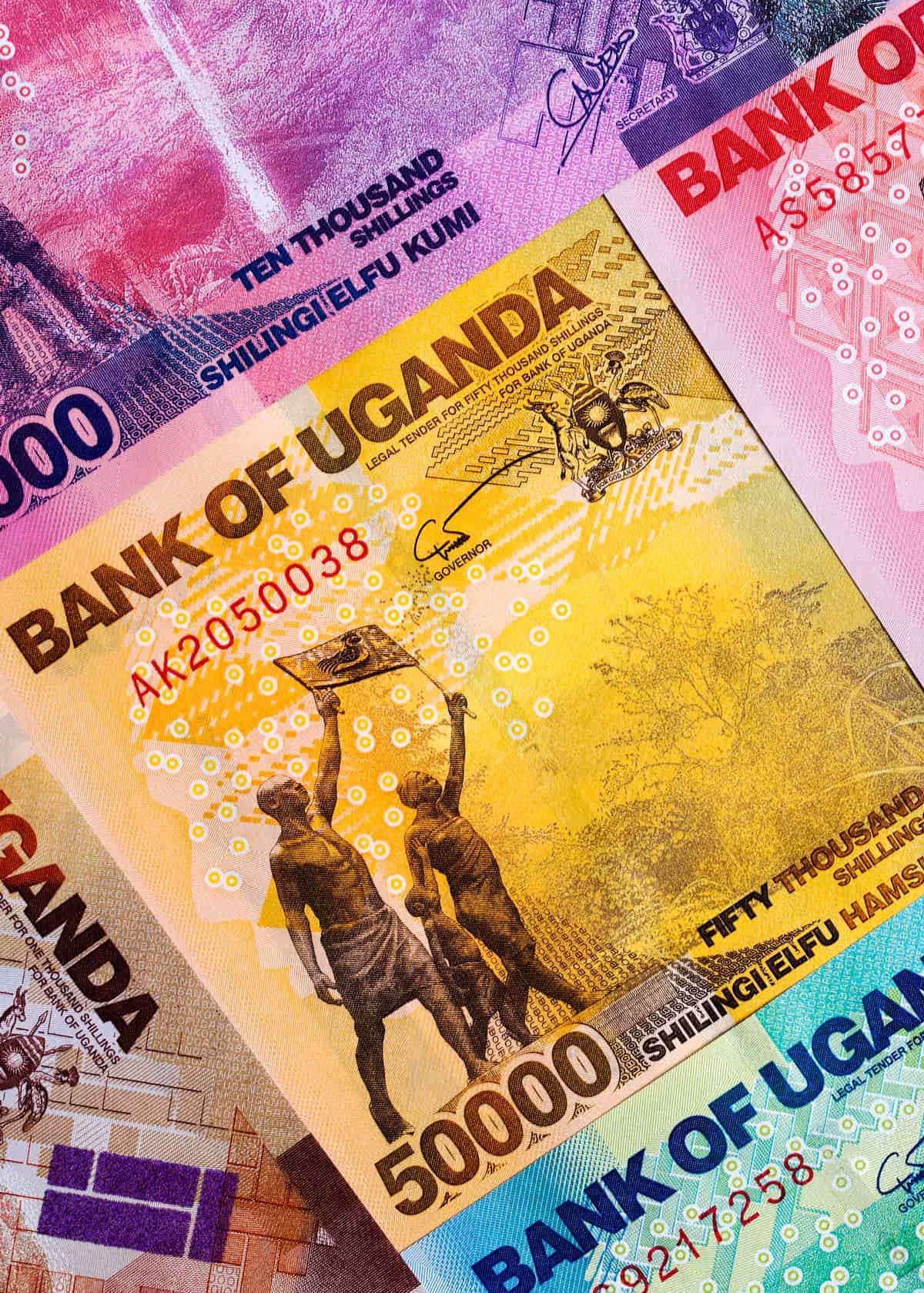
More reading: 14 Things to Do in Kampala Uganda
Once you know the facts about Uganda currency, traveling in Uganda should be much easier and trouble-free for you.
Understanding the Uganda shilling banknotes and how best to use them removes stress and prevents complications so that you can concentrate on enjoying the great experiences to be had in the Pearl of Africa.
Hi, I'm Bryan Haines . And I'm a co-founder of Storyteller.Travel . I'm a traveler and photographer.
I also blog about photography on Storyteller Tech .
Similar Posts
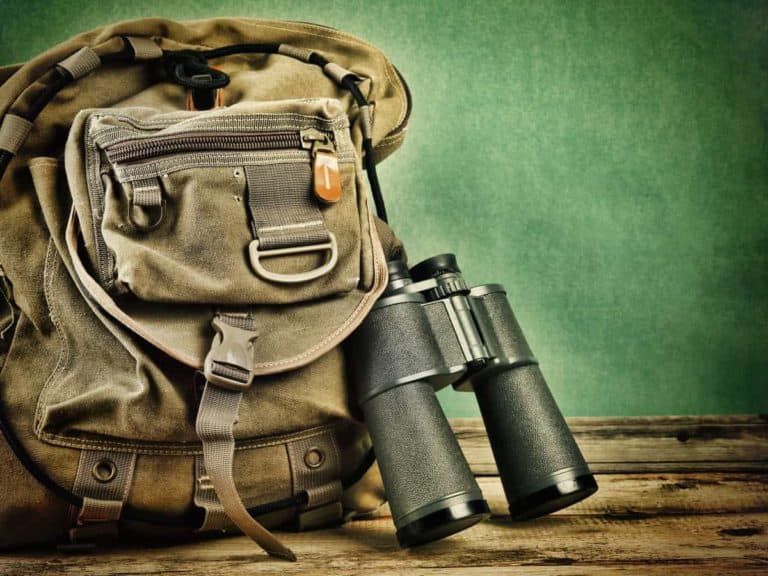
Complete African Safari Packing List [Checklist and Guide]
What do you need to pack for your upcoming safari? In this guide, you’ll get the complete African safari packing list – including 4 factors to consider when packing, how to pack minimalist, and just what to include with specific recommendations. We also include things that you shouldn’t bring on your safari. Ultimate African Safari…
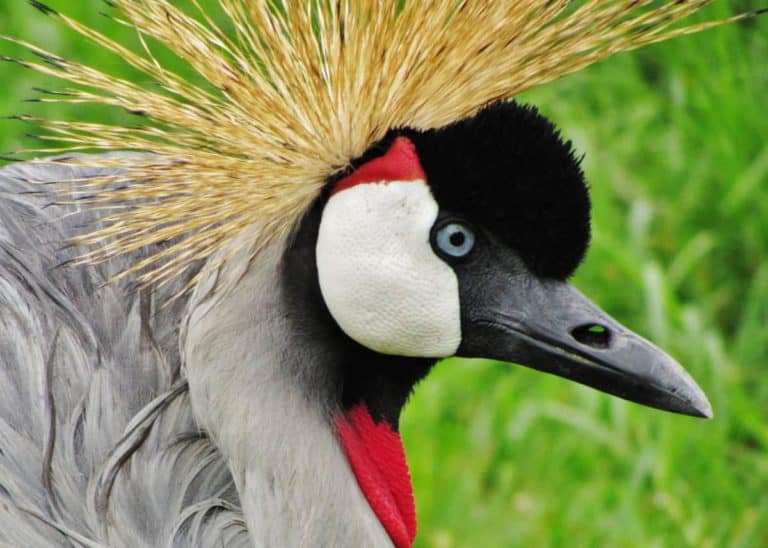
16 Facts About Crested Crane of Uganda, Africa: (Balearica regulorum gibbericeps)
In this post, you’ll learn about the crested crane of Uganda. Facts include population, diet, threats, dancing habits, lifespan, and more. Learn more about the other birds of Uganda. 16 Facts About Uganda’s Crested Crane The Crested Crane (a subspecies of the east African Grey-Crowned Crane) is a majestic but obscure bird that few people…
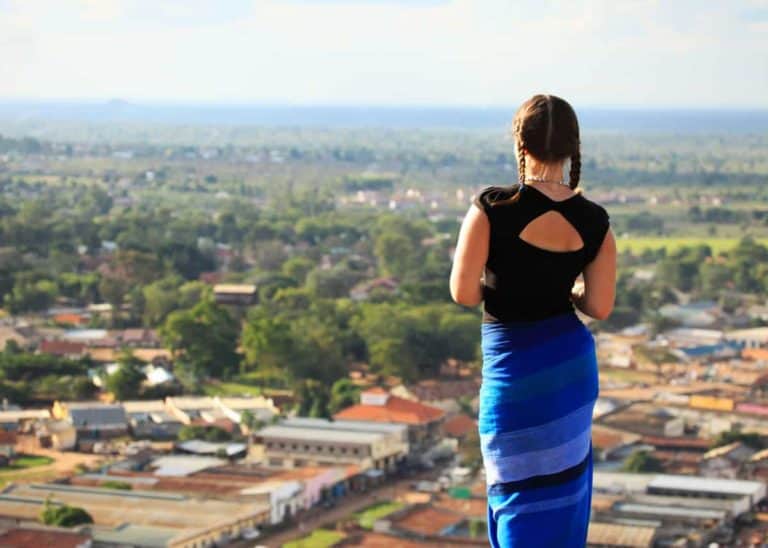
15 Incredible Things to do in Uganda [Culture, Nature, Culinary, Adventure…]
Here are 15 things to do in Uganda. They include gorilla trekking and animal safari, adventure sports, cultural events and much more. 15 Incredible Things to do in Uganda Nicknamed the “Pearl of Africa” by Sir Winston Churchill, Uganda offers a smorgasbord of impressive attractions and unique things that you can’t see or do anywhere…
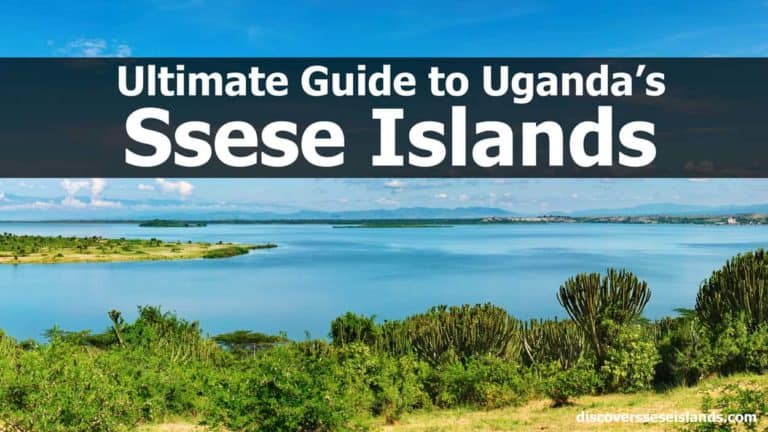
Travel Guide For the Ssese Islands, Lake Victoria (Uganda)
Uganda is rapidly becoming one of the hottest tourist destinations in Africa. People come from all over the world to marvel at the wildlife and plant life, eat incredible food, and take in the breathtaking scenery. The landscapes in Uganda are varied and wonderful. They’re perfect for hiking or taking nature walks. Visit Ssese Islands in Uganda…
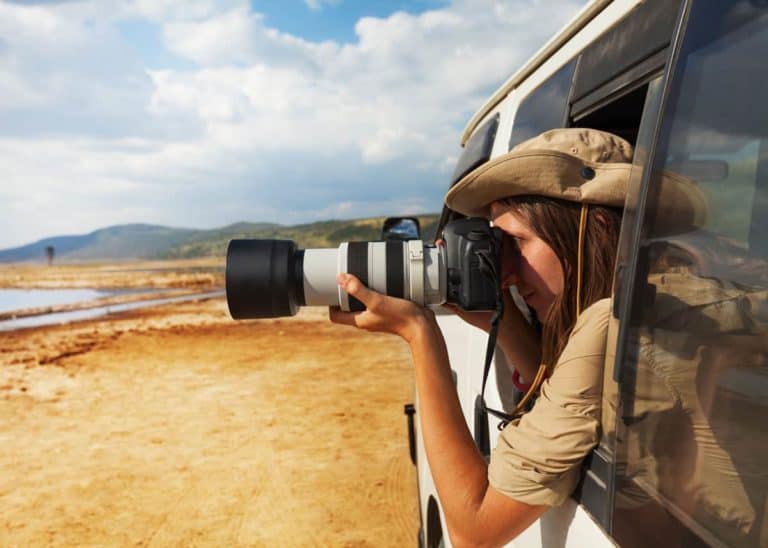
How to Choose the Best Camera for Safari [Buyers Guide]
Heading on a safari? Congratulations! Here’s how to choose the best camera for safari and trekking adventures. We also include a detailed Buyers Guide that breaks down the 9 primary considerations when deciding on a camera for your upcoming African safari. What else should you bring? Don’t forget anything with our Complete African Safari Packing…

31 African Rock Python Facts (Both Species) Africa’s Largest Snake
In this post, you’ll learn 31 facts about the African rock python. It is the largest snake in Africa – and one to be careful about. You’ll learn about its habitat, size, lifespan, diet, range, threats, and much more. Plus lots of photos and an amazing video! For your safety: we recommend a good pair of binoculars and…
Thanks so much bryan this nice
Thanks so much Bryan. This is really good information and reassuring. There are many tourist sites worth visiting in Uganda and this article gives one clear direction how to embark on such a tour.
Very good and interesting straight forward information, i wish to keep updated about the Ugandan Shillings/ currency.
After many years of not being iny mother land, this article refreshed my understanding of what Bank notes we have as I was not firmilar with any of them.
Thanks, Jennifer! All the best on your trip.
Leave a Reply Cancel reply
Your email address will not be published. Required fields are marked *

Cost of living and prices in Kampala, prices of food, rent, shopping, etc. 🇺🇬 Updated Jul 2023
Kampala, the capital city of Uganda, is a vibrant and bustling metropolis located in Eastern Africa. With a population of over 1.6 million people, it is the economic and cultural hub of the country.
Kampala offers a diverse range of housing options with a wide range of prices to suit all budgets. From luxurious apartments to affordable hostels, there is something for everyone. The cost of living in Kampala is generally low, making it an ideal destination for students, expats, and families looking to relocate.
If you're looking for a lively and cosmopolitan city in the heart of Africa, then Kampala is the perfect place for you. With its unique blend of cultures and traditions, as well as its stunning natural beauty, Kampala is a city that will capture your heart and leave you wanting more.
Cost of Living Estimate in Kampala
Total cost of living in Kampala for two person with average consumption for one month will be 639.74 USD , no rent price included. Click here to calculate cost-of-living estimate in Kampala
You can calculate cost of living in Kampala by changing quantity using input near each good or service. Resulting total will appear in a floating box in the bottom of your screen.
Restaurants prices
Food is an essential part of the culture of Kampala, and every corner of the city offers delicious options for all tastes. There are several high-end restaurants that offer a diverse range of local and international cuisines such as Indian, Chinese, Italian, and American. Most of these upscale restaurants are located in prominent parts of the city and they offer a unique dining experience with an excellent atmosphere.
For those who prefer a more casual experience, Kampala has plenty of street food options and local eateries that offer authentic cuisines. These places vary in quality and ambiance and are scattered throughout the city in both tourist and residential areas. Street food vendors offer a plethora of affordable options, and they are popular among locals and tourists alike. Traditional Ugandan dishes like matooke, beans, and matoke are readily available, and they offer an excellent way to immerse yourself in the local culture.
Markets prices
Market prices in Kampala, Uganda fluctuate based on a variety of factors such as seasonality, availability of goods, and competition among vendors. Kampala's markets offer a unique shopping experience with a wide variety of products ranging from fresh fruits and vegetables to handmade crafts.
Visitors to Kampala's markets can expect to negotiate prices with vendors, and bartering is a common practice. With so many options available, shoppers can find affordable bargains or splurge on higher-priced artisanal goods. The energy and buzz of the markets make them an essential part of experiencing Kampala's culture and economy.
Transportation prices
Traveling in Kampala offers visitors a unique opportunity to experience bustling city life in one of East Africa's most dynamic cities. The city is served by an extensive public transportation network, including shared taxis, buses, and boda-bodas (motorcycle taxis). Shared taxis (locally known as matatus) are the most common mode of transport, and they can be found in almost every corner of the city. They are brightly painted and offer cheap rides to locals and travelers alike. However, they can be quite challenging to navigate for first-time visitors as there are no designated bus stops, and the routes are not clearly marked. Therefore, for those not comfortable with navigating the matatus, private taxis are available for hire, and they offer a more comfortable ride and more convenient pick-up and drop-off points.
If you're looking for an adventurous way to get around Kampala, we highly recommend trying boda-bodas. Although they are not the safest mode of transport, they are the fastest and most convenient way to navigate around the city's crowded streets. Boda-bodas are popular among locals and visitors alike and have become part of Kampala's culture. They weave through traffic to get you to your destination faster than traditional taxis. However, it is crucial to keep safety in mind and remember to wear a helmet (which the driver should provide). If you prefer a safer option, the city has a growing number of car rental services where you can rent a car and drive it yourself or hire a driver to safely take you around Kampala.
Utilities Per Month prices
If you're planning a trip to Kampala, Uganda, it's important to be mindful of your utility usage. The cost of water and electricity can vary depending on where you stay, and it's possible to run up a hefty bill if you're not careful. Water is typically paid for on a monthly basis, and the cost can be higher if you use lots of hot water for showers or washing clothes. Electricity is usually calculated based on how much you use, and it's important to turn off lights and appliances when not in use to avoid racking up charges.
Another thing to keep in mind is that power outages are common in Kampala. This means that electricity won't always be available, so it's a good idea to have a generator or alternative source of power on hand. Additionally, some accommodations may only have electricity available during certain times of the day or night. It's important to ask about this before booking your stay so that you can plan accordingly and make sure you have access to the amenities you need.
Sports And Leisure prices
Sports and leisure are booming in Kampala, Uganda, thanks to the city’s warm climate, lush parks and gardens, and friendly locals. One of the most popular sports in Kampala is soccer, with several top-tier and amateur clubs spread throughout the city. Visitors can catch a game at Mandela National Stadium, built in 1997 and considered one of the finest soccer arenas in Africa. The stadium, which sits on a 45-hectare complex, can accommodate up to 50,000 fans and is home to Uganda’s national team, the Uganda Cranes.
If you’re looking for something more low-key, Kampala offers plenty of opportunities for leisure activities as well. One of the most popular spots for nature lovers is the Uganda Wildlife Education Centre, which offers guided tours, animal shows and other outdoor activities. Visitors can also take a trip to Lake Victoria, the world's second largest freshwater lake and home to a wide variety of fish and other aquatic creatures. Whether you’re interested in sports or leisure, Kampala is the perfect destination for anyone looking to enjoy the great outdoors in a vibrant, multicultural city.
Salaries And Financing prices
If you are planning to travel to Kampala, Uganda, it's important to note that salaries and financing can be quite different from what you may be used to. The cost of living is generally lower, but salaries are also lower in most job sectors when compared to other parts of the world. Therefore, you may be able to stretch your money further, but you may also need to adjust your expectations regarding the types of accommodations, activities, and dining experiences you will be able to afford.
When it comes to financing in Kampala, there are a variety of options available. ATMs are common throughout the city, and many shops, restaurants, and hotels will accept credit cards. It's worth noting, however, that some places may charge an additional fee for card transactions. It's also a good idea to carry small bills and coins with you, as some smaller vendors and taxis may not be able to provide change for larger bills. If you need to exchange currency, there are many banks and currency exchange shops available, but it's important to do your research to ensure you are getting a fair exchange rate.
Childcare prices
Childcare prices in Kampala, Uganda vary depending on the type of childcare facility, but as a general rule, school fees are often higher than fees for Kindergartens. Schools in Kampala often offer a more comprehensive curriculum, including subjects such as Mathematics, Sciences, and Humanities, in addition to basic childcare services. Schools also often have more resources available, including libraries, computer labs, and sports facilities. However, these additional services often come at a higher cost.
Kindergartens, on the other hand, are often more affordable than schools. They focus more on basic childcare services such as playtime, basic literacy and numeracy skills and may not have the same level of resources as schools. However, Kindergartens still provide a safe and nurturing environment for children, and are an excellent option for families who cannot afford the high fees charged by schools.
Clothing And Shoes prices
Kampala, Uganda is a bustling city with a vast array of clothing and shoe options. From locally made traditional outfits to designer brands, there is something for everyone's taste and budget. Street markets and small shops offer unique clothing and shoe options at affordable prices, while larger shopping centers provide a more extensive selection of international brands at higher price points. Regardless of where you choose to shop, bargaining is a common practice, so be prepared to negotiate prices.
In addition to traditional brick-and-mortar stores, Kampala has also embraced online shopping, with several e-commerce platforms available for customers to browse and purchase clothing and shoes from the comfort of their homes. Delivery options vary, but many retailers offer inexpensive or even free shipping within Kampala. When shopping online, it's always important to make sure to read reviews and check sizing charts, as many Ugandan clothing brands may have different sizing standards than what you are used to.
Rent Per Month prices
If you're planning a short stay in Kampala, there are plenty of options available to you. From cozy apartments to luxury villas, there's something for everyone. The range of short stay accommodations is broad, catering for different tastes, budgets and group sizes. Whether you need a place for a solo stay, a romantic getaway or a family vacation, you'll find the perfect fit in the city. Location is a key consideration when choosing a short stay in Kampala, as the city is geographically diverse and traffic can be challenging during peak hours. Despite some of the challenges, you'll be able to choose an affordable accommodation that meets your needs.
Short rent accommodation options in Kampala, Uganda are varied and competitive. There are many furnished apartments and villas that offer a comfortable alternative to the traditional hotel experience. These short stay apartments are equipped with a range of amenities, including studio, one or two bedrooms and kitchens, Wi-Fi, TV, and air conditioning. The apartment options are typically well maintained, come with housekeeping, and often offer the kind of flexibility that suits short-term stays. Compared to the price of staying in a hotel, short term accommodation offers you a higher level of space, privacy, and freedom to move at your pace. Kampala is an attractive destination for travelers because of its beautiful landscape, rich history, and vibrant culture and having a comfortable experience extends the stay.
Buy Apartment prices
Real estate buying options in Kampala, Uganda are diverse and are suitable for different needs. From apartments to townhouses to multi-bedroom family homes, the property market in Kampala caters to different tastes and preferences. For those interested in luxurious living, high-end properties are available in exclusive neighborhoods. For those looking for more affordable options, there are townhouses and apartments that are more budget-friendly. Additionally, the real estate market in Kampala offers opportunities for those looking for land to build their own homes or for investment purposes.
When it comes to prices, the real estate market in Kampala is influenced by various factors such as location, property size, and amenities. Generally, properties located in exclusive neighborhoods tend to be more expensive than those in less affluent areas. The same goes for properties with more bedrooms and amenities such as an onsite gym or swimming pool. However, regardless of the price, property owners can rest assured that they are investing in a valuable asset as the real estate market in Kampala continues to grow.
Cost of living in the cities nearby
- Katwe, Uganda
- Kireka, Uganda
- Bweyogerere, Uganda
- Namasuba, Uganda
- Port Bell, Uganda
- Kajjansi, Uganda
- Mukono, Uganda
- Mpigi, Uganda
- Wakiso, Uganda
- Entebbe, Uganda
Change language
Change currency.
Cost of Living in Uganda
- A family of four estimated monthly costs are 167,288.6руб (6,793,135.8USh) without rent.
- A single person estimated monthly costs are 48,009.3руб (1,949,525.6USh) without rent.
- Cost of living in Uganda is, on average, 23.3% higher than in Russia .
- Rent in Uganda is, on average, 16.4% lower than in Russia .
Prices in Uganda

- Quality of Life in Uganda
- Crime in Uganda
- Health Care in Uganda
- Pollution in Uganda
- Property Prices in Uganda
- Traffic in Uganda
Copyright © 2009-2024 Numbeo. Your use of this service is subject to our Terms of Use and Privacy Policy
- Travel Advisories |
- Contact Us |
- MyTravelGov |
Find U.S. Embassies & Consulates
Travel.state.gov, congressional liaison, special issuance agency, u.s. passports, international travel, intercountry adoption, international parental child abduction, records and authentications, popular links, travel advisories, mytravelgov, stay connected, legal resources, legal information, info for u.s. law enforcement, replace or certify documents.
Share this page:
Uganda Travel Advisory
Travel advisory december 28, 2023, uganda - level 3: reconsider travel.
Uganda Level 3 – Reconsider Travel C T O
Reissued with updates to terrorism information.
Reconsider travel to Uganda due to crime, terrorism , and anti-LGBTQI+ legislation . Some areas have increased risk. Read the entire Travel Advisory.
Country summary: There remains a threat of terrorist attacks in Uganda and throughout the region. Numerous terrorist attacks have occurred in Uganda, to include religious venues, schools, and areas frequented by tourists, resulting in the deaths of Ugandans as well as foreign visitors. U.S. citizens should remain alert and avoid large public gatherings. In October 2023, ISIS-Central Africa claimed responsibility for killing two international tourists and a Ugandan driver within Queen Elizabeth National Park.
Violent crime , such as armed robbery, home invasion, and sexual assault, presents a serious threat to those visiting and residing in Uganda and can occur at any time, especially in larger cities, including Kampala, Jinja and Entebbe, in the Karamoja region, and along Uganda’s western and northern borders. Local police may lack appropriate resources to respond effectively to serious crime in most areas.
The May 2023 Anti-Homosexuality Act raises the risk that LGBTQI+ persons, and those perceived to be LGBTQI+, could be prosecuted and subjected to life imprisonment or death based on provisions in the law , and may be subject to mandatory reporting to the police if they are suspected of committing or intending to commit acts in violation of the law, and could face harassment or attacks by vigilantes. Those perceived to support the dignity and human rights of LGBTQI+ persons (including those of youth under the age of 18) could be prosecuted and imprisoned for multi-year sentences. Even an unsubstantiated accusation of supporting the LGBTQI+ community can create risks from police and vigilantes. Read the country information page for additional information on travel to Uganda.
If you decide to travel to Uganda:
- Remain alert and avoid large public gatherings.
- Keep a low profile.
- Be aware of your surroundings.
- Do not display signs of wealth, such as expensive watches or jewelry.
- Use caution when walking or driving at night.
- Remain with a group of friends in public.
- Do not physically resist any robbery attempt.
- Do not open your door for people at your hotel/residence unless you know who it is.
- Do not leave food and drinks unattended in public, especially in local clubs.
- Stay alert in locations frequented by foreign tourists.
- Be extra vigilant when visiting banks or ATMs.
- Carry a copy of your passport and visa (if applicable) and secure originals in your hotel safe.
- Provide your itinerary to a family member or friend.
- Enroll in the Smart Traveler Enrollment Program (STEP) to receive Alerts and make it easier to locate you in an emergency.
- Be mindful that any public identification with the LGBTQI+ community, as either a member or supporter, could be grounds for prosecution, and that even private consensual same-sex relations are illegal.
- Follow the Department of State on Facebook and Twitter .
- Review the Country Security Report for Uganda.
- Prepare a contingency plan for emergency situations. Review the Traveler’s Checklist.
- Visit the CDC page for the latest Travel Health Information related to your travel.
Travel Advisory Levels
Assistance for u.s. citizens, search for travel advisories, external link.
You are about to leave travel.state.gov for an external website that is not maintained by the U.S. Department of State.
Links to external websites are provided as a convenience and should not be construed as an endorsement by the U.S. Department of State of the views or products contained therein. If you wish to remain on travel.state.gov, click the "cancel" message.
You are about to visit:
Cost of Living in Uganda
How much does it cost to live in uganda.
Before deciding to relocate anywhere in the world, gaining a sense of familiarity with the place, its people, possible expenses, and monthly salaries there is what newcomers should take into consideration so as to be able to relax and enjoy the place shining through in all its glory.
If you are having Uganda in mind when speaking about a new place to live you should know that it attracts many nationalities of foreigners because of amazing living conditions if you are earning a salary in your home country.
Uganda : Cost of Living by City
Restaurants.
People who visit Uganda usually comment on how inexpensive its restaurants are, especially those which serve domestic meals.
Even the price of alcohol is not high and dining out from time to time would not take too much off your budget.
Looking at the price of groceries, and comparing it with how much salary one earns, it can be said that it is a key factor that determines a person’s ability to provide for his/her family.
If you want to lead a successful life here, with not much trouble regarding spending on food, you should buy it at discounts or at the market.
TRANSPORTATION
Besides the fact that gasoline prices are not low, public transportation here is affordable.
You can choose either to pay tickets per ride or take a monthly pass and save quite an amount on this.
Driving includes not only possessing the vehicle but also paying the insurance and registration, which increases the expenses.
UTILITIES (MONTHLY)
Even though Uganda has to offer good Internet packages, the price of them is extremely high, and the majority of people would not be able to afford it, especially because it is not of utmost importance for a living.
Other basic services are not expensive, and they do not exceed $52 per month.
SPORTS & LEISURE
While tennis court rents are pretty affordable, compared to some more developed countries, fitness club fees are quite high.
Even though Uganda residents do not earn too much, they spend almost 10% of their salaries on entertainment and sports activities.
For a person earning the minimum, none of the options will be affordable.
CLOTHING & SHOES
Apparel prices range based on the prominence of the brand you have chosen to buy and the stores can offer different prices.
All in all, foreigners would consider it a paradise for shopping for designer clothes, while the residents would not take it as affordable, due to low incomes.
RENT PER MONTH
The renting options are numerous, starting from various sizes to numerous locations around the country.
The price of rent depends on a number of factors and people have to choose it according to their possibilities.
The larger apartments closer to the city centers require more money for rent.
Cost of Living Averages Table for Uganda
How does the average person spend their money in uganda.
Uganda is a country that offers everything on the same level as some other countries, but with a cheaper cost of living, thus foreigners with high incomes would lead a comfortable and relaxing lifestyle.
Others who do not earn high wages would need to pay attention to their spending.
Even if you plan to buy property so as to save some money on rent, you will have to pay high mortgage interest rates which are not affordable here.
The greatest expense is definitely the food, while transportation, utilities, and restaurants also take quite a lot.
Average Costs Breakdown
Uganda: average salary, minimum wage & mortgages.
The data shows that the minimum salary in Uganda is only $1.6 per month.
This amount is not enough to buy two loaves of bread, and not to speak about the rent and utilities.
People here do not lead a rich life, as even the average monthly salary is not high enough to cover basic expenses.
If you are able to negotiate future income with your employer, it is advisable to make a plan for your spending and determine how much you will need to provide for yourself and your family.
Uganda Safety Overview
READ THE FULL REPORT: Uganda Safety Review

- OVERALL RISK: MEDIUM
- TRANSPORT & TAXIS RISK: HIGH
- PICKPOCKETS RISK: HIGH
- NATURAL DISASTERS RISK: MEDIUM
- MUGGING RISK: MEDIUM
- TERRORISM RISK: MEDIUM
- SCAMS RISK: HIGH
- WOMEN TRAVELERS RISK: HIGH
Cost of Living by City in Uganda
Where to next.
See these related locations:
- Switzerland
Or, browse the country/city indexes:
Share Your Experience Cancel reply
Your Review
Title of your review
Popular Destinations

Safety Index
Recent reviews & comments.
- Christian Lowe on Grand Junction
- Andrew Lang on Grand Junction
- Elliot Smith on Grand Junction
- Arnold Diesel on Socorro
- Trevor Long on Socorro
Popular US States
- Pennsylvania

- Investor Relations
- Insurance Portal
- Investment Portal
Travel Insurance
- 24-hour emergency medical assistance
- Personal accident cover, including permanent total disability
- Compensation for travel delay
- Loss of traveler's property
- Emergency medical expenses and evacuation
- Emergency dental care
- Repatriation of mortal remains
- Hospital benefits
- Personality liability
- Hijack coverage
- Loss of passport
- Cancellation and curtailment
- Travel delay
- Trip cancellation or interruption
- Medical assistance
- Evacuation insurance
- Baggage and personal item loss
- Trip delays
- Lost or delayed baggage
- Medical coverage and evacuation
Request for a callback
Related products, marine insurance, plate glass policy insurance, political violence and terrorism insurance, we value your privacy.
We would like to use cookies to provide you with a better website experience. Learn more about our cookie policy.
Stay up to date with notifications from The Independent
Notifications can be managed in browser preferences.
UK Edition Change
- UK Politics
- News Videos
- Paris 2024 Olympics
- Rugby Union
- Sport Videos
- John Rentoul
- Mary Dejevsky
- Andrew Grice
- Sean O’Grady
- Photography
- Theatre & Dance
- Culture Videos
- Fitness & Wellbeing
- Food & Drink
- Health & Families
- Royal Family
- Electric Vehicles
- Car Insurance Deals
- Lifestyle Videos
- Hotel Reviews
- News & Advice
- Simon Calder
- Australia & New Zealand
- South America
- C. America & Caribbean
- Middle East
- Politics Explained
- News Analysis
- Today’s Edition
- Home & Garden
- Broadband deals
- Fashion & Beauty
- Travel & Outdoors
- Sports & Fitness
- Climate 100
- Sustainable Living
- Climate Videos
- Solar Panels
- Behind The Headlines
- On The Ground
- Decomplicated
- You Ask The Questions
- Binge Watch
- Travel Smart
- Watch on your TV
- Crosswords & Puzzles
- Most Commented
- Newsletters
- Ask Me Anything
- Virtual Events
- Wine Offers
- Betting Sites
Thank you for registering
Please refresh the page or navigate to another page on the site to be automatically logged in Please refresh your browser to be logged in
‘Devastated’ passengers told to cover expenses after cruise ship delay
Villa vie odyssey had been due to set sail on a three-year voyage in may but the departure date is now unclear, article bookmarked.
Find your bookmarks in your Independent Premium section, under my profile

Sign up to Simon Calder’s free travel email for expert advice and money-saving discounts
Get simon calder’s travel email, thanks for signing up to the simon calder’s travel email.
Passengers plagued by delays while waiting to set sail on Villa Vie Odyssey – with the promise of unlimited voyages around the globe and a guaranteed cabin – are now being asked to cover their expenses ahead of their adventure of a lifetime.
According to a recent YouTube update from MidLife Cruising , a vlog detailing life on board Villa Vie Odyssey with more than 9,000 subscribers, passengers received an email from the cruise line’s CEO late on Monday 9 September announcing “there were still some problems.”
According to the pair, the email stated that “sea trials weren’t as great as expected, and they still had to get through some final certifications”.
In this “devastating” update delivered to the couple and fellow would-be passengers, Villa Vie Residences also reportedly extended a request to ask passengers to cover their expenses for “at least the next seven days.”
Until now, the cruisers, who have left and returned to Northern Ireland four times during the ship’s delays, have had their hotels and food covered by Villa Vie Residences, and have been allowed on board during the day to use the facilities.
“Seven days is a lot in Belfast. It’s too much for us. It’s cheaper for us to fly back to the States ,” explains MidLife Crusing in their video update. “They’ve spent basically half a million dollars already covering all of us here in Belfast.”
Villa Vie Odyssey was scheduled to set sail from Northern Ireland at the end of May. It was due to visit all seven continents, with stops at more than 425 ports in 147 destinations, but has been stalled due to the ship requiring work to the rudders and the gearbox, among other repairs and tests.
Mikael Petterson, CEO of Villa Vie Residences, told The Independent : “While the road has had its challenges, every decision we’ve made is focused on the wellbeing and safety of our residents. We have supported our residents with trips around Europe, and spent over $2m in hotel stays and trips to accommodate and entertain them while Odyssey has been getting ready for launch.”
“Since residents are scattered throughout Europe in over 20 different hotels, we have decided to let residents plan their hotels and way back to the ship for launch. These costs will be compensated with onboard credit of up to $200 per day. The hard work continues, and we are on track to welcome passengers onboard by the end of this week. We look forward to launching with pride and purpose, knowing we’re not just building a ship but a united community at sea together.”
Odyssey , built in 1993, has sailed for several different cruise lines, including Cunard (as Crown Dynasty ) and, most recently, Fred Olsen Cruise Lines as Braemar . Passengers had the opportunity to purchase their cabins outright for the multiyear float for prices between $99,999 (£75,600) and $899,000 (£680,000) rather than paying a daily rate.
US -based Villa Vie Residences has described itself as “a leading innovator in modern-day residential cruising”.
Join our commenting forum
Join thought-provoking conversations, follow other Independent readers and see their replies
Subscribe to Independent Premium to bookmark this article
Want to bookmark your favourite articles and stories to read or reference later? Start your Independent Premium subscription today.
New to The Independent?
Or if you would prefer:
Hi {{indy.fullName}}
- My Independent Premium
- Account details
- Help centre
Lee cabinet to get ethics training; governor has no plans to repay travel expenses

Gov. Bill Lee said Tuesday his team is working to expand the ethics training required for all members of his cabinet after the Tennessee Ethics Commission recommended doing so following a complaint filed against the state education commissioner.
Last week, the Ethics Commission dismissed a complaint against Education Commissioner Lizzette Reynolds that alleged she had illegally accepted travel payments from a group that lobbies the legislature, finding that because she repaid the funds, there was no reason to take the case further. In dismissing the case, the panel recommended all members of the governor’s cabinet undergo ethics training to avoid a similar situation in the future.
Lee also accepted paid travel from an outside group that lobbies the legislature, but said the payment was legal and has no plans to repay the expenses.
Reynolds last year traveled to two out-of-state conferences hosted by ExcelinEd — her former employer and a national school choice advocacy group — with expenses paid by the organization. ExcelinEd, a 501(c)3 nonprofit, and its partner 501(c)4 organization, ExcelinEd Action, both employ Miranda Williams, who is registered as a lobbyist in Tennessee.
State ethics laws prohibit members of the executive branch from accepting gifts, including travel reimbursements, from lobbyists and their employers.
After The Tennessean first reported the travel, Rep. Caleb Hemmer, D-Nashville, filed an ethics complaint against Reynolds, alleging that in accepting the payments, she skirted ethics rules. Reynolds then paid back about $2,000 in travel expenses and was reimbursed by the state.
Ethics commissioners considered the complaint behind closed doors and ultimately voted to dismiss it, citing Reynolds’ repayment of the money.
Lee said Tuesday that he wants to see the ethics training happen.
“I think it’s a great idea,” Lee said. “I think the more people understand exactly what the rules are and how to follow them, the more transparency there is to that, the better it is.”
While their situations are similar, Lee said he has no plans to repay travel expenses paid for by the outside group, as Reynolds did.
In July, Lee traveled to Marco Island, Florida, to speak at a conference of Alliance Defending Freedom , a group behind a handful of controversial new state laws. ADF and its partner 501(c)4 organization both employ Matthew Lorimer, a registered lobbyist in Tennessee.
The trip was not announced publicly, nor was it documented on any of the governor's social media accounts. The only mention of Lee's travel to the ADF conference outside his internal office schedules is an expense noted on campaign finance disclosures, which his office said was for a staffer’s travel expenses.
More: TN Gov. Bill Lee spoke at Florida retreat paid by Christian law firm behind new state laws
Lee said Tuesday that he does not plan to repay travel expenses reimbursed by Alliance Defending Freedom.
“The two cases are different,” Lee said Tuesday. “That 501(c)3 organization offered to reimburse hotel and travel expenses, which is customary and allowable under the law, and so it’s an acceptable expense. I don’t have a plan to repay because it’s a legal expense.”
Both Lee and Reynolds had travel expenses paid by 501(c)3 organizations that employ lobbyists registered in Tennessee. Each also has an affiliated 501(c)4, organizations that can employ lobbyists but are allowed to engage in more overt political activity.
Lee said group paying for his travel wasn't trying to skirt the spirit of the ethics rules.
“I think the law is pretty clear, 501(c)3s customarily provide for travel expenses for speakers,” Lee said Tuesday.
Members of the Tennessee House Democratic Caucus say Lee should pay the money back — as Reynolds did — because failing to do so gives an appearance of favoritism and impropriety that the law is designed to avoid.
"Rules for thee, but not for Gov. Bill Lee!" Hemmer wrote on social media Tuesday. "While I am glad the Cabinet will have to take required ethics training based on my complaint, I am befuddled on why the Governor thinks taking a lobbyist-funded junket to Florida isn’t illegal or at least against the spirit of the law."
If Lee doesn't pay back the money, House Democratic Caucus Chair John Ray Clemmons, D-Nashville, said Democrats will file an ethics complaint against the governor.
“If Bill fails to reimburse the money like his unqualified Education Commissioner recently did, then we will necessarily file yet another ethics complaint against this administration,” Clemmons said.
Clemmons called the governor’s acceptance of the travel reimbursement a “a prima facie violation of state ethics policy intended to prevent or create the appearance of one using public office for private gain.
“Though his personal opinion and actions have always indicated otherwise, Gov. Bill Lee is not above the law,” Clemmons said. “He knowingly accepted gifts in the form of travel and lodging from an organization that openly and consistently advocates for the enactment of policies in Tennessee."

IMAGES
VIDEO
COMMENTS
The best accommodation options in Uganda are hotels and guesthouses, with the occasional hostel. Ugandan hotels are priced pretty reasonably and you can expect to pay around $15 - $20 for a place that has all the basics. On the other hand, higher-end stays might cost you more in the $50 - $100 range, but you will only really find places ...
How much does it cost to travel to Uganda? You should plan to spend around $105 (USh387,435) per day on your vacation in Uganda. This is the average daily price based on the expenses of other visitors. Past travelers have spent, on average for one day: $28 (USh102,215) on meals; $20 (USh75,325) on local transportation; $93 (USh342,944) on hotels
Africa / Uganda /. Visitors to Uganda usually spend between $44 and $221 per day on average for one person and $89 to $443 for two people. While this is a wide range, the average daily cost averages $105 (USh387,435) per person. This average includes sightseeing, hotel, food, and local transportation expenses from other travelers.
Taxis - Taxis are the most expensive way to get around cities, though also the safest. Prices are always negotiable, though expect to pay between 15,000 and 40,000 UGX ($4-11 USD) for a ride, depending on distance and time of day. Coach Buses - Coach buses, run by a number of companies, are used to travel long distances within Uganda as ...
Daily budget: $ 145 for 2 ppl. $ 18 per person. $ 5.1 per person. $ 13 per person. Total budget: $ 3001 * (11134172 UGX) * Estimated local budget for 2 people for 2 weeks. This represents an average across the country (budget may vary depending on the city or region visited).
The local currency in Uganda is Ugandan Shilling. One US Dollar is about UGX3,750. Lush vegetation along the Kampala-Jinja Road Uganda Itinerary and Expenses. I only had three days in Uganda so I wasn't able to explore the country as much as I should have. One of the reasons visited Uganda was to see the source of the Nile River.
This guide was written by Edoardo, travel guide and owner of Albrieux Africa Tours In the last 10 years Uganda has attracted the attention of professional and amateur travellers and photographers; many wonder what the budget is necessary to organize a complete travel itinerary, with enough stay times to see all the beauties that the country offers without having to spend excessive amounts of ...
Uganda's park entrance permits are paid by credit card, but all other expenses on your travel in Uganda are mostly paid for in cash. Most restaurants, lodges or campsites do not accept foreign debit cards. Paying with foreign credit cards (Visa and Mastercard) is possible, but only at the more upmarket hotels and restaurants. ...
Learn about the cost of a trip to Kampala with our comprehensive guide based on travel costs from other travelers. ... accommodation, meals, and transportation, all from our large repository of travel expenses from previous visitors. Keep in mind, though, your personal spending might vary a bit based on your own level of luxury, travel style ...
from 35.20 USD to 43.48 USD. Daily budget for one person, assuming that two people travel in a standard close to 1 star (hostels, public transport). When traveling alone, the cost may be slightly higher (hotel room) or the same (dormitory accommodation). Average daily expenses were calculated on the basis of the prices of accommodation, food ...
When it comes to the cost of a trip to Uganda, it's crucial to consider various factors. For a round-trip ticket from major international airports, flights to Uganda can range from $800 to $1,500, depending on the season and airline. Accommodation options in Uganda cater to all budgets, with prices ranging from $10 per night for budget hotels ...
In order not to exceed reasonable expenses during a trip to Uganda, which we estimate at 64 USD (239,000 UGX) for a one day, you must comply with the following rules:. Choose to stay in a hostel (32 USD (117,000 UGX)) or in a cheap hotel (31 USD (116,000 UGX)).; Use public transport.
Other expenses in Uganda - 0.9% of total budget Uganda. Total spent: Ush73,128 / € 18.03 / $ 19.87 Cellphone subscription: ... For this amount, you mostly travel by public transport, visit some national parks, sleep in dorms and eat simple meals. Prefer something more luxurious? Then budget a daily budget of 90 euros per person per day. For ...
Daily travel expenses Uganda and Rwanda*: 95 USD per day *These daily travel expenses are per one person per day. Including the gorilla permit (600USD), tours, souvenirs, lodging, food, drinks, transportation, entrance fees, tips etc. Excluding international flights.
Another major expense when traveling in Uganda is transportation. However, there are various transportation options for budget travelers within Uganda, including public buses, shared taxis, and motorcycle taxis (boda bodas). ... They are also the most adventurous and risky way to travel in Uganda, as they have no helmets, seat belts, or ...
FCDO travel advice for Uganda. Includes safety and security, insurance, entry requirements and legal differences. ... Insurance should cover your itinerary, planned activities and expenses in an ...
However, you will find that the euro (EUR), Great Britain pound (GBP), and the U.S. dollar (USD) are used frequently throughout Uganda. Many tour operators, such as those for gorilla trekking, and upscale hotels often quote in U.S. dollars, but you can use Uganda shillings for payment. 5. Exchanging Your Money to Uganda Shillings.
The prices vary depending on the location and level of luxury, but there are options for every budget. Whether you are looking for a budget-friendly backpackers' hostel or a luxurious hotel stay, Uganda has plenty of affordable options to choose from. One bedroom apartment in city centre. 195.21 $.
Discover the true cost of living in Kampala, Uganda with our comprehensive and insightful report! TravelTables offers an in-depth analysis of living expenses, including housing, transportation, and food costs, along with helpful tips to save money and make the most out of your stay in this vibrant city. Don't miss out on this essential guide to Kampala's cost of living - start planning your ...
Cost of Living in Uganda. Summary of cost of living in Uganda: A family of four estimated monthly costs are 1,827.7$ (6,794,838.4USh) without rent. A single person estimated monthly costs are 524.6$ (1,950,177.3USh) without rent. Cost of living in Uganda is, on average, 48.8% lower than in United States.
Reconsider travel to Uganda due to crime, terrorism, and anti-LGBTQI+ legislation. Some areas have increased risk. Read the entire Travel Advisory. Country summary: There remains a threat of terrorist attacks in Uganda and throughout the region. Numerous terrorist attacks have occurred in Uganda, to include religious venues, schools, and areas ...
101 posts. Driver expenses. Aug 11, 2024, 8:55 PM. My wife and I are hiring RAV4 in Uganda touring around the southwest for 5 days. The company I have booked with is charging $475 total for the 5 days which includes a private driver and the vehicle. We have already booked all of the accommodation for ourselves with all lodges providing full board.
The data shows that the minimum salary in Uganda is only $1.6 per month. This amount is not enough to buy two loaves of bread, and not to speak about the rent and utilities. People here do not lead a rich life, as even the average monthly salary is not high enough to cover basic expenses. If you are able to negotiate future income with your ...
Our travel insurance plans cover common risks travelers face, including medical emergencies, lost luggage, trip cancellations, evacuations, and delays. We offer four distinct travel plans: the Gold Plan, Premium Plan, Schengen Plan, and Student Plan. Choose the one that best fits your needs and travel with peace of mind, knowing you are ...
Villa Vie Odyssey was scheduled to set sail from Northern Ireland at the end of May. It was due to visit all seven continents, with stops at more than 425 ports in 147 destinations, but has been ...
Lee said group paying for his travel wasn't trying to skirt the spirit of the ethics rules. "I think the law is pretty clear, 501(c)3s customarily provide for travel expenses for speakers ...